Urban Climate Resilience Research: Grantees and Projects
Cities are home to over half of the global population, with 4.4 billion people living in urban areas. By 2050, urban areas are expected to accommodate an additional 2.5 billion people, with nearly 90% of this growth concentrated in Asia and Africa. While urban centers are significant contributors to climate change due to rapid growth and high emissions, they are also increasingly vulnerable to climate-related hazards, leading to rising human and economic losses.
The greatest increase in urban vulnerability is occurring in low- and middle-income nations, particularly in unplanned and informal settlements. These areas often have limited capacity to adapt to climate risks, and many small to medium-sized urban centers lack the necessary resources to respond effectively. Despite these challenges, cities are not just on the frontlines of climate impacts, but they are also hubs for innovation and solutions.
This research program aims to deepen our understanding of urban climate resilience, focusing on low- and middle-income countries. By supporting original research, the program seeks to expand knowledge and evidence on diverse pathways to climate resilience across multiple levels—ranging from governance and socio-economic drivers to community-led innovations and nature-based solutions in cities of different sizes. Learn more about the program, it's terms and conditions here.
Thirty-six research teams were selected from almost 1,600 applications spanning 94 countries. The grants support research projects across 22 countries in Latin America, Africa, Europe, and Asia Pacific, fostering evidence and insights from diverse contexts worldwide.
Learn more about the program, and explore each project by clicking on the map icons or scrolling down to read the research abstracts.
Meet the researchers
Topic 1: Community-Led Climate Adaptation and Resilience Solutions in Cities
- Topic 1.1: Community-driven innovations for adaptation. What are the success factors for community-led innovative strategies and solutions for climate adaptation in urban areas, including technology-enabled solutions.
- Topic 1.2: Participatory urban planning. How do participatory approaches in urban planning contribute to climate resilience, and what evidence demonstrates their effectiveness and best practices.

Fadhilah Trya Wulandari
Country: Indonesia
Institution: Hasanuddin University
Project title: Empowering Resilience: Community-Driven Technological Innovations for Climate Adaptation Among People with Disabilities in Coastal Urban Makassar
Fadhilah Trya Wulandari holds a Bachelor's in International Relations from Hasanuddin University, focusing on international law and human rights. She earned her Master’s at ISS, Erasmus University Rotterdam, researching women in aquaculture and Jakarta’s coastal defense. Her work focuses on gender equality, disability, and social inclusion. She is currently working at the Partnership for Australia-Indonesia Research while pursuing a PhD in Development Studies at Hasanuddin University, Indonesia.
Amanda Pricella Putri (Hasanuddin University) – An expert in community-based marine conservation and resilience, Amanda has extensive experience in supporting vulnerable groups. Her work includes coping strategies for people with disabilities during COVID-19 and community-driven conservation in Raja Ampat. Her research on resilience and climate adaptation in coastal cities strengthens her contributions to this project.
Nur Syarif Ramadhan (PerDIK/ Indonesian Indonesian Difability Movement for Equality) – A leading disability rights advocate, Nur Syarif is Chairperson of PerDIK and a Disability Expert for BAPPENAS. His expertise in inclusive policy-making and research on disability rights, including the impact of COVID-19, positions him as a key contributor in designing and implementing community-led resilience initiatives.
Purnamasari (Sulapa Institute) – With a background in national policy design, Purnamasari has worked with Kemenko PMK on strategic human development initiatives. Her expertise in institutional cooperation and climate adaptation research, including her work with COREMAP-CTI, ensures strong connections to national stakeholders for project dissemination and scaling up.
Amdya Hisyam (Sulapa Institute) – A specialist in migration, gender-based violence, and disability justice, Amdya holds a Master’s from Istanbul Bilgi University. An active advocate for displaced communities and the visually impaired in Singapore, her extensive experience in gender and disability justice brings valuable insights to the project.
This diverse team combines expertise in policy, advocacy, research, and community engagement to ensure a holistic and impactful approach to climate adaptation for people with disabilities.
Climate change disproportionately impacts people with disabilities, especially in coastal urban areas, where rising sea levels and extreme weather pose serious threats. This study explores community-driven adaptation strategies and technology solutions for inclusive disaster resilience. Using a mixed-method approach, we collaborate with a local disability organization to ensure accessibility. Findings will inform policies and inclusive adaptation frameworks to enhance long-term resilience.
The study advances inclusive climate adaptation by identifying community-driven strategies and accessible technologies for people with disabilities. Findings will inform policies, enhance disaster resilience, and benefit vulnerable communities while strengthening societal climate preparedness.
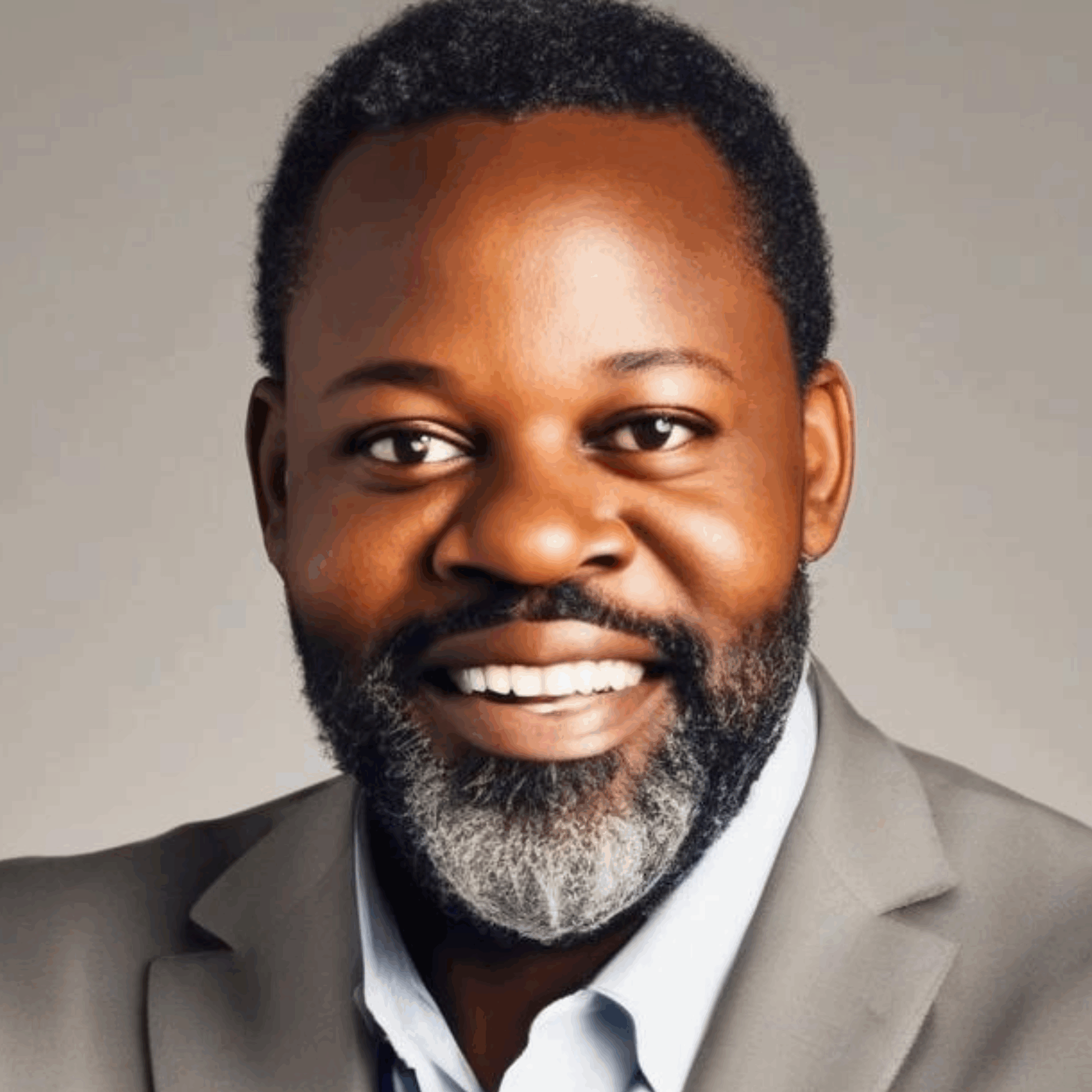
Dr. Kevin Usagi Ememwa
Country: Kenya
Institution: Moi University
Project title: Understanding Success Factors in Community-Driven Climate Adaptations to Strengthen Disaster Preparedness: A Critical Realist Study of Urban Innovation in Informal Settlements Along the Nairobi River Basin
Highly motivated medical doctor with extensive healthcare project coordination experience, currently pursuing an MSc in research ethics. My work focuses on ensuring evidence-backed innovations reach those who need them most—particularly vulnerable populations. As co-investigator researching digital health financing for informal sector workers in urban settings, I witnessed firsthand how socioeconomic contexts shape community health outcomes. The GDPC grant aligns perfectly with my commitment to community-driven, multidisciplinary approaches integrating human, animal, and ecosystem health in urban informal settlements.
Dr. Godia, our team supervisor, brings extensive experience in participatory qualitative methods and has conducted global health research across diverse Lower- and Middle-Income settings. Her background developing implementation-ready toolkits as both an academic and public health professional ensures methodological rigor.
Mr. Phillip Dinga, co-investigator, contributes environmental planning expertise and climate change knowledge critical to our ecosystem-focused approach. As City Adviser for C40 Cities, he helped develop Nairobi's long-term Climate Action Plan and establish technical working groups. His extensive professional networks will facilitate peer review of study outputs, ensuring transferability and validity. As a certified UNFCCC Reviewer, his involvement guarantees our research remains context-aware, relevant to real issues, and aligned with national and global climate commitments.
My research explores successful community-driven climate adaptation strategies in Nairobi's informal settlements along the Nairobi river basin. By studying two areas - Mukuru and Mathare - I aim to identify what works, for whom, and under what circumstances when communities develop innovative responses to climate challenges like flooding and heat stress. By examining the underlying mechanisms behind successful initiatives, my study will produce a practical toolkit and policy recommendations to help scale effective solutions, strengthening disaster preparedness and urban resilience where it's needed most—among vulnerable populations living in high-risk environments.
This study will create practical tools for implementing scalable climate adaptations in vulnerable urban communities, providing evidence-based guidance for disaster preparedness organizations. By identifying success factors in community innovations, the research will help policymakers allocate resources more effectively while empowering informal settlements to build climate resilience. The findings will bridge the gap between grassroots initiatives and institutional support systems, ultimately protecting lives and livelihoods from escalating climate threats.
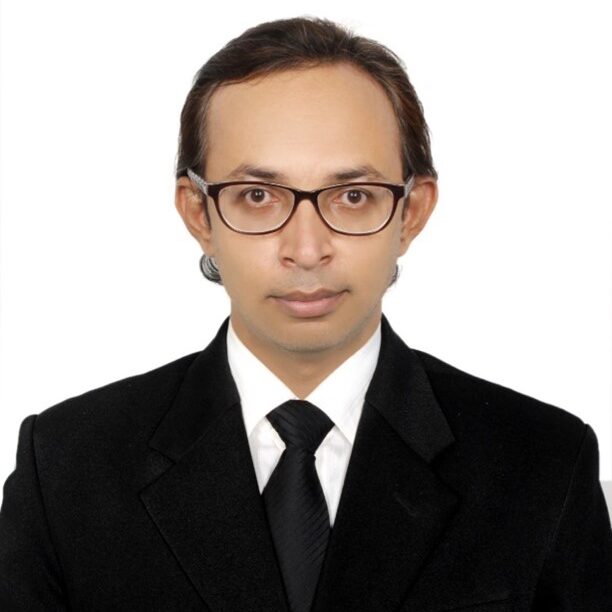
Sayed Mohammad Nazim Uddin
Country: Bangladesh
Institution: Asian University for Women
Project title: Lived experiences of “invisibilized” slum and informal settlement populations: Climate change impacts, adaptation, and the way forward for slum transformation
Dr. Sayed Mohammad Nazim Uddin works at IMDEA Water Institute, Spain as a Distinguished Researcher. He is also the Founding Director of the Center for Climate Change and Environmental Health (3CEH) at the Asian University for Women. His research focuses on Water Security, Sanitation, Humanitarian Engineering, and Planetary Health across the world. He has over 20 years of experience in participatory teaching and learning, community-based research and project implementation.
Nazifa Rafa is a human geographer with an interest in how climate change and disaster risks shape state-society relations and the lived experiences of marginalized communities like slum populations, rural poor, and refugee communities. She has experience with using qualitative methods, such as in-depth interviews, focus groups, photovoice, and other participatory methods. Currently, she is pursuing a PhD that explores how disaster risk manifests in refugee camps, and how disasters create spaces for power and agency.
Md. Akib Jabed is trained as a geographer and urban management expert, and he works professionally as a climate change researcher. With a strong interest in mixed methods research, Mr. Jabed has overseen numerous research initiatives that address climate change effects, losses and damages, forced displacement, Nature-based Solutions, urban environmental issues, and various public health concerns. At present, he is managing two projects 3CEH at the Asian University for Women (AUW), which are funded by IDRC Canada and the European Commission. Mr. Jabed has collaborated with academics from every continent, with the exception of Antarctica.
Sadia Salim is a dedicated environmental and public health professional with a double major in Environmental Science and Public Health. As a Community Development Officer at the Center for Climate Change and Environmental Health (3CEH) at the Asian University for Women, she plays a pivotal role in advancing public health and environmental initiatives. Sadia actively contributes to the European Commission-funded CATA-Earth Project, supporting the development of a community-focused planetary health curriculum tailored for climate-vulnerable regions. Her work ensures local contexts and resilience strategies are central to educational interventions. Her involvement in the IDRC-funded Knowledge for Democracy Myanmar (K4DM) project includes conducting in-depth research and fieldwork in Rohingya refugee camps, where she leads impactful workshops and awareness campaigns that address pressing health and environmental issues. With expertise in community outreach, climate change adaptation, WASH (Water, Sanitation, and Hygiene), research methodologies, and advocacy, Sadia’s work is rooted in participatory approaches that empower marginalized communities and foster sustainable solutions.
Tahiya Tasnim is a Politics, Philosophy, and Economics ( PPE) graduate with a specialization in development studies. She is currently working as a Research Assistant (Academic) at the Center for Climate Change and Environmental Health of the Asian University for Women, contributing to two major projects focused on community and environmental advancement. In the European Commission-funded CATA-Earth (Catalysing Transformative Change in Planetary Health Education) Project, she assists in developing a community-based planetary health curriculum. She is also engaged in the K4DM (Knowledge for Democracy Myanmar) project by IDRC (International Development Research Centre), where she conducted research in Rohingya camps and helped organize a symposium and awareness camp to amplify marginalized voices. Tahiya is skilled in various data collection methods, including in-depth interviews, focus group discussions, and surveys, and is proficient in data analysis tools such as SPSS, and R programming.
Sal-Sabila, a recent Environmental Science graduate from the Asian University for Women, is currently involved in the Center for Climate Change and Environmental Health (3CEH), where she is contributing as a Research Assistant (Community Development). Through the European Commission-funded CATA-Earth Project, She is helping to develop a planetary health curriculum to address climate adaptation needs for communities in climate-vulnerable regions. She is also engaged in the Green Bangle Project by Green Bangle Movement, where she contributed with a chapter of the pre-print book “Green Bangle: A Movement for Mangrove and Palm Rehabilitation”. Her expertise lies in WASH, community outreach, and disaster adaptation strategies, and has a strong foundation in climate change, environmental health, and waste management. She is also proficient in data analysis tools- SPSS.
Rapid urbanization has led to slum formation, where residents face vulnerability to climate-induced risks such as flooding. Therefore, this research will investigate the impacts of climate change on urban slum populations in Bangladesh, focusing on their experiences, adaptations, and maladaptation. Using a mixed-methods approach, the study will provide a comprehensive perspective on vulnerabilities and resilience strategies and develop transformational policies for urban slums.
It will provide a comprehensive understanding of how climate change affects urban people's daily lives and well-being. It will catalogue successful and maladaptive strategies implemented by slum dwellers and will offer valuable lessons for other cities and contexts facing similar challenges.
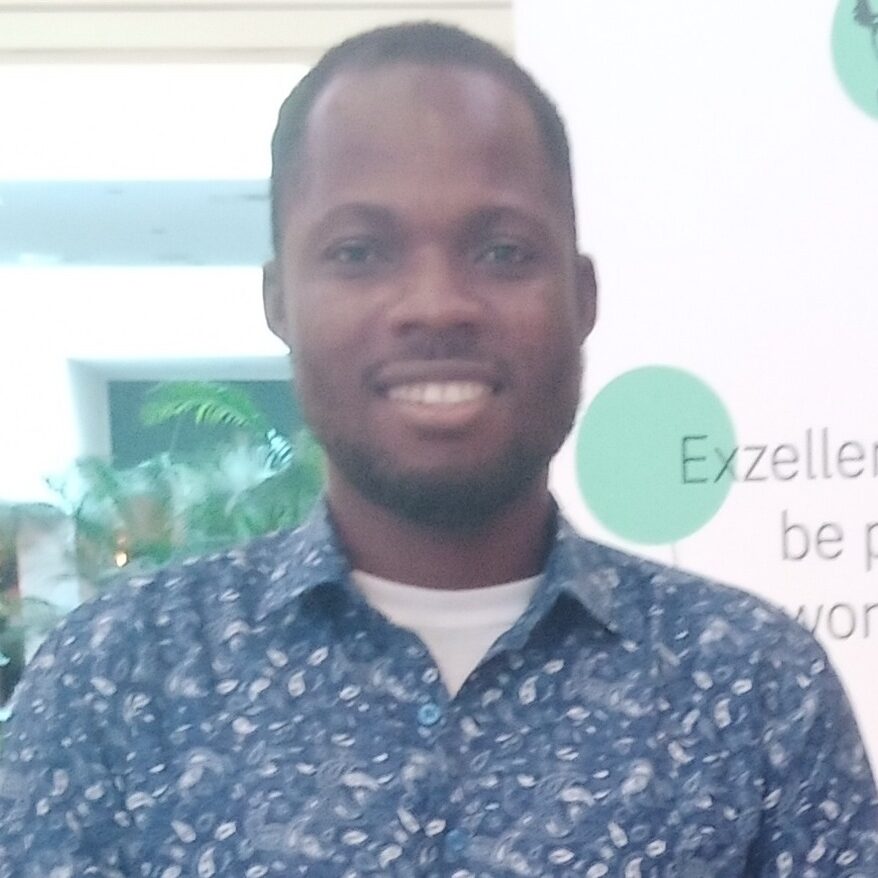
Samson Olanrewaju
Country: Nigeria
Institution: Osun State University
Project title: Assessment of Community-led Flood Adaptation Strategy in Coastal Slums of Lagos, Nigeria
Dr. Samson Olanrewaju is an academic and urban planning expert with a Ph.D. in Urban and Regional Planning. He teaches at Osun State University, Nigeria, and leads the Cities and Global Development Research Cluster. His research focuses on urban governance, land use planning, and environmental management, with a particular interest in Nigeria’s urban challenges. Dr. Olanrewaju has held leadership roles in various professional organizations and has received numerous awards for his research and contributions to urban planning.
Dr. Olabisi Obaitor, an Urban Planner and Research Scientist at Ludwig Maximilian University of Munich, specializing in slum dynamics, resilience, and climate change adaptation.
Dr. Victor Onifade, an Associate Professor at the University of Lagos, focuses on sustainable livelihoods, environmental planning, and urbanization in Africa.
Ms. Ayomide Oluwuyi, a postgraduate student at Osun State University, is researching environmental health, vulnerability assessment, and access to safety nets in slums.
This study focuses on the flood challenges in Lagos, Nigeria, particularly in its coastal slums. It examines how local communities in areas like Makoko, Ijora-Badia, and Ilaje adapt to frequent flooding. Despite limited resources, these communities use innovative strategies to cope. The research explores the roles of different stakeholders in these strategies, evaluates their success, and offers recommendations for strengthening such efforts to reduce future flood impacts.
This study will provide valuable insights into community-led flood adaptation strategies in vulnerable coastal slums. The findings can guide policymakers in developing inclusive, sustainable urban planning and climate adaptation policies, improving resilience, and enhancing the well-being of affected communities.
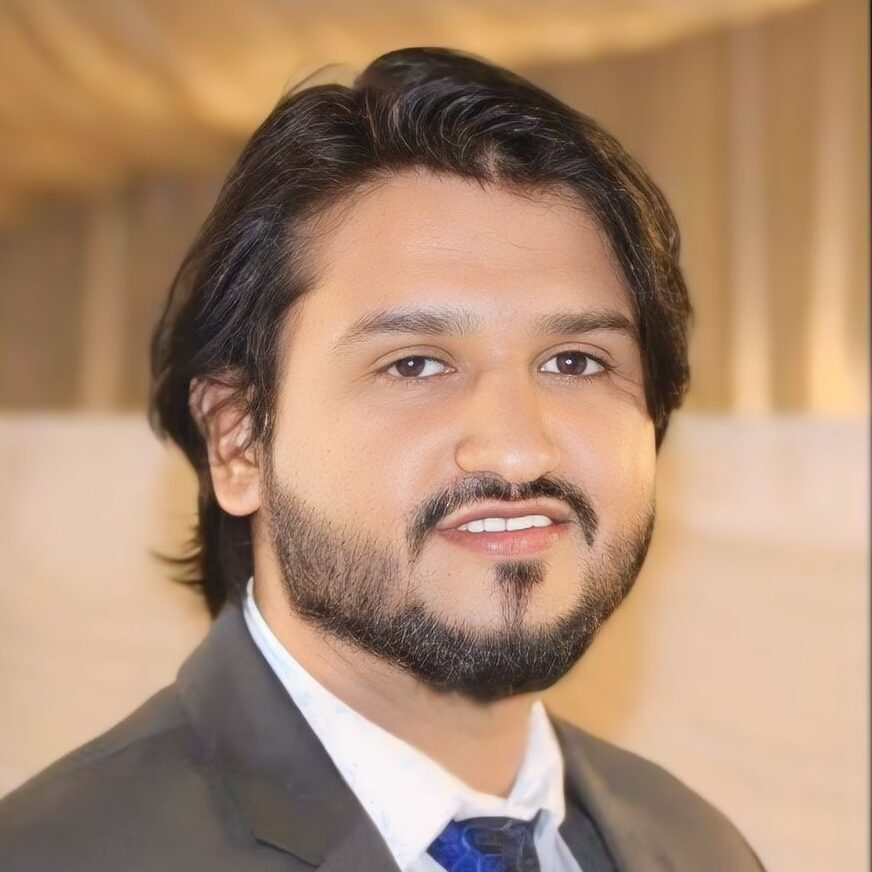
Aamir Sohail
Country: Pakistan
Institution: Thal University Bhakkar
Project title: Sustainable Urban Resilience in Pakistan: Community-Based Natural Solutions for Environmental Transformation
Dr. Aamir Sohail is a faculty member at Thal University Bhakkar, Pakistan, specializing in finance and commerce. He holds a Ph.D. in Finance and is pursuing postdoctoral research in Canada. As Deputy Treasurer and Deputy Director ORIC, he oversees financial operations and research initiatives. His work critically examines sustainable finance, green technology, and economic resilience, contributing to high-impact publications and securing funding for urban climate resilience research.
Dr. Shrafat Ali Sair (Senior Researcher – Marketing and Sustainability) is an Assistant Professor at Hailey College of Commerce, University of the Punjab, with a Ph.D. in Marketing. His research interests include sustainability, digital marketing, and behavioral insights in environmental policies. He has supervised multiple Ph.D. and M.Phil. students and has published extensively in marketing, consumer behavior, and green supply chain management. His expertise ensures the study incorporates effective communication and stakeholder engagement strategies for sustainable urban resilience.
Muhammad Usman Arshad (Researcher – Environmental and Socio-Political Studies) is an academic researcher specializing in socio-political dynamics, gender studies, and environmental issues. He holds a Bachelor’s in Botany from the University of Education, Lahore, with expertise in resource management, climate policy, and interdisciplinary sustainability research. His work has been published in high-impact journals, particularly focusing on gender and climate change vulnerabilities, regulatory challenges in natural resource management, and global energy geopolitics. His skills in qualitative and quantitative research, SPSS, and NVivo contribute to data-driven insights for the project.
Dr. Mussarat Hussain
Dr. Mussarat Hussain is working as a Lecturer in Sociology at the Department of Sociology & Criminology, University of Sargodha, Pakistan. He holds a Ph.D. in Sociology from the Institute of Social and Cultural Studies, University of the Punjab, Lahore, and an M.Sc. in Sociology from Bahauddin Zakariya University, Multan. Previously, he served as a Research Associate at the Planning & Development Board, Civil Secretariat, Lahore. He has published more than 38 research articles in HEC-recognized and impact factor peer-reviewed journals, including Frontiers in Psychology, Asia Pacific Journal of Public Health, Psychology and Education, and Webology. He is also serving as an Associate Editor of the research journal Contemporary Issues in Social Sciences and Management Practices.
Izza Fatima
Izza Fatima is a researcher with an interdisciplinary background in Computer Science. She is currently pursuing her Ph.D. in Computer Science at Gomal University, D.I. Khan, and holds an MS/MPhil in Computer Science from Qurtuba University of Science and Information Technology. She serves as Director and Owner of the Research Consultancy on Social and Management Development (RCSMD) and has experience in technology-integrated, data-driven, and interdisciplinary research. Her research interests include digital governance, artificial intelligence in society, data ethics, and academic publishing.
Our research explores sustainable urban resilience in Pakistan by using community-based natural solutions to address environmental challenges in major cities like Karachi and Lahore. We focus on reducing pollution, mitigating climate risks, and enhancing social cohesion through green initiatives. By engaging local communities, we aim to develop low-cost, scalable, and eco-friendly solutions that improve urban sustainability and disaster preparedness.
Our study promotes sustainable urban resilience through community-driven natural solutions. It helps reduce air pollution, mitigate climate risks, and enhance social cohesion. By engaging local communities, our findings support cost-effective, eco-friendly urban planning and disaster preparedness.
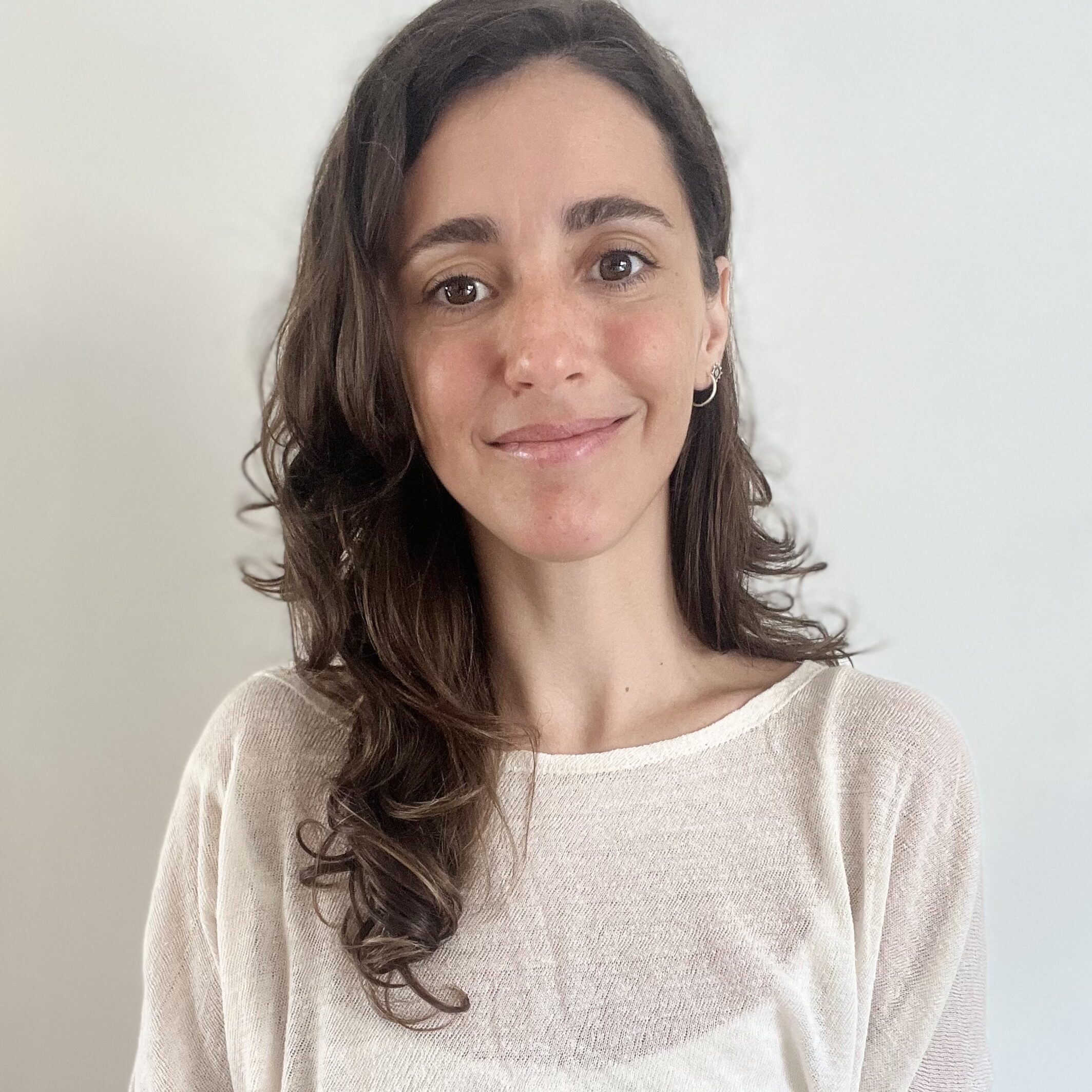
Emilia Portis
Country: Argentina
Institution: University of Rosario
Project title: Examining Community-Driven Resilience and Participatory Adaptation in Latin American Informal Settlements: Insights from Argentina and Chile
This research is conducted in collaboration with community leaders, with the University of Rosario and TECHO providing key information support. It directly engages residents of informal settlements, ensuring knowledge co-production and alignment with their needs, perspectives, and local expertise.
Dr. Zachary Pealore is a Lecturer at the University for Development Studies. His main areas of specialization focus on participatory approaches and livelihoods development, food security, climate change adaptation and mitigation and peacebuilding. He is also a development consultant to many state and non-state development actors.
Ms. Zuweira Yakubu is a Senior Program Officer with LINK – Ghana, a National Non-Governmental Organisation focused on the design and implementation of livelihoods and financial inclusion programs, peace building and cooperative programming. Her research focuses is on gender, livelihoods and climate change adaptation and mitigation.
Mr. Richard Adusei is a lecturer at the University for Development Studies, specializing in computer science and IT. He holds an MPhil in Computational Mathematics and a BSc in Computer Science. With expertise in programming, data analysis, and cloud computing, he has contributed to academic research and system development, including a RESTful API for UDS.
Mr. Adonija Loriba is a development planning student at KNUST with experience in research, project coordination, and community engagement. He has worked with NGOs on climate resilience, women’s empowerment, and urban planning projects. Skilled in data analysis, leadership, and teamwork, he aims to drive sustainable development.
This study explores how informal settlements in Argentina and Chile develop grassroots adaptation strategies to mitigate climate risks such as droughts, wildfires, and landslides. It examines community-driven resilience efforts, participatory planning, and the role of local knowledge in climate adaptation. The findings will contribute to evidence-based, equitable urban resilience frameworks.
The study can help policymakers and organizations strengthen VSLAs to improve financial security and climate resilience in urban areas. It offers insights on supporting low-income communities, guiding development programs, and enhancing local adaptation strategies to climate change, ultimately fostering sustainable urban growth.

John Aubrey Chirwa
Country: Malawi
Institution: University of East Anglia
Project title: Participatory planning and filmmaking for urban climate resilience in Blantyre City, Malawi
John Aubrey Chirwa is a PhD candidate in Global Development at the University of East Anglia (UEA) in the United Kingdom. His PhD research focuses on the interplay between communication, policy, and disaster risk reduction. His primary objective is to elucidate the potential role of participatory communication in disaster risk reduction, particularly among marginalised communities in Malawi. His PhD project is the culmination of a decade of experience as an Environmental Journalist in Malawi. It also draws upon his master’s research thesis, which examined the conceptualisation of communication in disaster risk management policies and strategies in Malawi.
John’s project investigates the efficacy of indigenous filmmaking as a participatory urban planning tool for climate resilience in Blantyre City, Malawi. Africa’s rapid urbanisation and high poverty exacerbate disasters in informal settlements. John’s project samples an informal settlement in Blantyre, where participatory filmmaking will foster dialogue between the urban poor and city planners. The goal is to develop collaborative plans for an inclusive, safe, resilient, and sustainable city.
Results of the project will inform theory, policy and practice within the sector of urban climate resilience. For instance, the project will generate theoretical evidence on the contribution of arts-based tools such as film in enhancing urban planning for climate resilience. On the practical aspect of it, the project will provide a platform for community members and policymakers to interface on issues of urban planning in the face of climate change. And lastly, the project contributes to policy issues as outlined by the Sustainable Development Goals (SDGs), specifically goal number 11 on sustainable cities and communities.

Christine Njuhi Muchiri
Country: Kenya
Institution: The Technical University of Kenya
Project title: Catalytic Tech-Based Participatory Methods to Build Climate Resilience Locally: A Case of Mathare Informal Settlement, Nairobi, Kenya
Christine Muchiri is a Lecturer and Researcher in the Department of Architecture, Design and Planning at the Technical University of Kenya. She has extensive experience in urban governance, smart city planning, climate resilience, disaster risk reduction, policy development and sustainable urban development. Christine has contributed to research on community driven resilience including her publication "Community Adaptation Strategies in Nairobi Informal Settlements: Lessons from Korogocho, Nairobi, Kenya”. She has engaged with academia, government, non-state actors and international organizations, focusing on policy frameworks and innovative approaches for climate adaptation in vulnerable urban contexts.
This research explores the use of a digital co-design platform that will enable inclusive planning and real-time engagement between community members, local authorities and technocrats to foster climate resilience. This study aims at bridging the gap between top-down climate adaptation policies and grassroots solutions. The findings will provide policy recommendations for integrating low-tech and digital tools into climate resilience planning.
The study is anchored on empowering residents to take charge of climate solutions, leading to more targeted and effective adaptation initiatives that reflect the unique strengths and needs of the communities. It advances the objects of participatory planning beyond traditional consultation to innovative tools for co-design and co-production. Traditional methods undermine genuine knowledge transfer and sharing, and eliminate the inclusion of authentic community views in urban planning interventions. Low-tech participatory planning methods can aid in addressing a number of organizational, technical and social factors that tend to limit the use and influence of current participatory practices.

Beth Kachota
Country: Tanzania
Institution: Mzumbe University
Project title: Urban Climate Change Adaptation: Analyzing the Institutionalization Planning Approaches in Tanzania
Beth Kachota is an academic professional currently pursuing her PhD at Sokoine University of Agriculture (SUA), where she focuses on critical aspects of Information Ethics. With a deep interest in the intersection of environmental and health issues and Information ethics. Beth is committed to exploring how information systems and policies can be developed to balance societal needs with environmental sustainability.
In addition to her PhD studies, Beth is an Assistant Lecturer, Researcher, and Consultant in the Department of Information Studies at Mzumbe University. In her academic role, she imparts knowledge to undergraduate and graduate students, encouraging critical thinking and the ethical use of information across various sectors. Her teaching emphasizes the right of access to environment information and Protection of intellectual property.
Beth’s academic journey began with a strong foundation in law at Mzumbe University, followed by a Master of Information Studies degree from the University of Dar es Salaam. Her research interests are deeply rooted in the right to environmental information management, health information systems, and the ethical implications of information use, particularly in the context of environmental sustainability and the global digital landscape. She is especially interested in how information systems can be designed and implemented to promote sustainability and environmental conservation while ensuring privacy, equity, and justice for all stakeholders.
Beth's expertise also extends to consultancy, where she collaborates with organizations, academic institutions, and government bodies to develop policies, strategies, and practices that uphold ethical standards in information management. Whether advising on policy issues, privacy laws, or sustainability initiatives, Beth brings a unique perspective that blends her technical expertise in information systems with her commitment to ethical principles and environmental sustainability.
Beth’s vision is to foster a world where the development and application of information systems align with ethical practices that promote social justice and environmental well-being, ensuring a sustainable future for generations to come, involving in scientific research, conducting projects on usual aspects of life including information ethics, and climate change.
Dr. Coretha is a Senior Lecturer of Economics at Mzumbe University, Dar es Salaam Campus College, Tanzania. She holds a PhD in Economics (2014), an M.A. in International Development (2004), and an Advanced Diploma in Economic Planning (2000). Currently, she serves as the Principal Investigator in an ongoing research project. With over 20 years of academic and research experience, Dr. Coretha has taught a wide range of economics courses at Mzumbe University and collaborated with international institutions, including the University of Bradford (UK), CMR University (India), and the Institute of Financial Management in partnership with the Indian Institute of Foreign Trade. Her research interests focus on the economic impact of climate change adaptation and mitigation, natural resource and environmental economics, and monetary and financial economics. She has published extensively, including significant works on climate change and economic policy. Dr. Coretha has contributed to various research and consultancy projects, notably the DANIDA-funded "Climate-smart Futures in Rural Tanzania (CliFT)" initiative. Her expertise and commitment to advancing research and policy development in environmental and economic sustainability are widely recognized. In addition to her research, Dr. Coretha is dedicated to mentoring the next generation of economists and continues to play a pivotal role in shaping economic policies through her scholarly work and collaborative projects.
Kardo Joseph Mwilongo is a lecturer at Mzumbe University in the United Republic of Tanzania. He holds a PhD and Master’s Degrees in Information Studies. His areas of interest for research, teaching and consultancy are mainly on library information management, information dissemination on environmental and climate change, library collection development, information technology, open educational resources, literacy and research methods. He has worked as a co-principal investigator in various projects and authored multiple articles published in various reputable and peer-reviewed academic journals.
Elizabeth Sulle.
Elizabeth Sulle is an assistant lecturer at Mzumbe University in the United republic of Tanzania. She holds a Master’s Degrees in Information Studies. Her areas of interest for research ,teaching and Consultancy are mainly on digital information, information dissemination on environmental and climate change,libarary management.She works as co-principal investigation on project titled Need Assessment for Establishment of academic archives in selected higher learning institutions in Tanzania.
This project focuses on assisting Tanzanian towns, such as Morogoro, Dar es Salaam, Arusha, and Dodoma, in adapting to challenges posed by climate change. The urban areas selected are increasingly vulnerable to rising temperatures, droughts, floods and unpredictable rainfall patterns. In response, Tanzania has developed strategic frameworks like the National Climate Change Response Strategy (2021-2026), which aims to integrate climate change considerations into national development plans and enhance adaptive capacities across various sectors. However, there remain gaps in understanding the geographical aspects of vulnerability and effectively incorporating these insights into urban planning practices.
The primary goal of this project is to strengthen how Tanzanian cities prepare for and respond to climate change. The project will focus on four key areas:
- Understanding Tanzania’s climate adaptation efforts
The project expects to examine the actions Tanzania has already taken to address climate change in urban areas. Through interviews with government officials, urban planners, and community leaders, the project aims to assess the strengths and weaknesses of the current climate adaptation systems. - Assessing public awareness
The project developed an interest to investigate the level of urban residents’ awareness in regard to climate change and the steps they can take to protect themselves. By conducting surveys and community workshops, the project will ultimately raise awareness and empower local populations to engage in adaptation efforts. - Evaluating existing policies
Through this project, initiatives can be put in place to review the laws, policies, and frameworks that guide urban climate adaptation. This analysis will help identify gaps and provide recommendations to improve these policies, ensuring they offer better protection to vulnerable groups and address the unique challenges of a particular city. - Engaging stakeholders
The project emphasizes the importance of involving various stakeholders, such as government agencies, NGOs, private companies, and community organizations in climate adaptation planning. Through collaboration, the project is expected to bring into attention on issues related to adaptation strategies, sustainability, and effective implementation of the strategies operated inclusively.
Moreover, the project abides to the principles of research project implementation where all the methodology, research methods and ethical considerations will be considered during the project execution. The project will demonstrate respect for local knowledge, cultural sensitivity, and equitable resource distribution, ensuring that adaptation measures are socially just and effectively mitigate climate risks for all urban residents. The project will end up of knowledge dissemination for the public consumption and thus manuscripts will be developed and published with the most reputable databases, blind double peer reviewed with an acknowledgement of the GDPC for financial support.
The study will improve the city's plan and respond to climate change, the project directly supports global efforts like the United Nations Sustainable Development Goals (SDGs). Specifically, it aligns with Goal 11 (Sustainable Cities and Communities) and Goal 13 (Climate Action) by promoting urban resilience and long-term planning while leading to;
- Stronger Policies and Frameworks: The research will offer evidence-based recommendations to improve existing climate adaptation policies, making them more effective and responsive to urban challenges.
- Increased Community Awareness: Through training sessions and workshops, urban residents will become more informed about climate risks and the actions they can take to protect themselves.
- Enhanced Collaboration: By involving stakeholders such as government agencies, NGOs, and community organizations, project will promote better coordination and resource-sharing for climate adaptation efforts.
- Inclusive Adaptation Strategies: The project will focus on making adaptation policies more equitable, ensuring that vulnerable social groups are considered in planning and decision-making processes.
- Long-Term Urban Resilience: Project aims to strengthen the capacity of Tanzanian cities to withstand and recover from climate-related challenges, contributing to sustainable urban development and improved life for residents.
The study also advances the institutionalization of climate adaptation policies, which is essential for the long-term sustainability of climate resilience efforts. By embedding climate adaptation into urban governance frameworks, institutions such as TMA and NEMC will be equipped to monitor, enforce, and ensure compliance with climate resilience standards. This institutionalization process will address existing gaps in urban planning and promote a more coordinated and sustainable approach to climate change adaptation.
Thus, the study outcomes will enhance institutional capacity, promote policy integration, and foster collaboration among stakeholders. These efforts will contribute to a more coordinated and effective urban climate adaptation framework, ensuring that Tanzanian cities are better prepared to face the challenges of climate for long-term planning.
Topic 2: Socio-Economic and Institutional Drivers of Climate Resilience in Cities
- Topic 2.1: Socio-economic pathways to resilience. Effectiveness and success factors for different types of socio-economic incentives and 'boosts' to climate resilience of individuals, households, and small businesses, particularly in the informal sector in cities. Examples of such ‘boosts’ include one-time cash grants, micro-insurance, rotating credits or loans, tax incentives, matched funds, support for cooperatives, and support from social safety nets, etc.
- Topic 2.2: Urban climate governance. What is the role of cities in climate governance, and what are the strategies and institutional frameworks that support and/or hinder effective and equitable climate action in different urban contexts

Sipho Felix Mamba
Country: Eswatini
Institution: University of Eswatini
Project title: Socio-Economic Pathways to Urban Climate Resilience: Exploring Governance and Incentives for Equitable Climate Action in Global South Cities
Dr. Mamba is a Senior Lecturer and Researcher at the University of Eswatini (formerly Swaziland) in the Department of Geography, Environmental Science, and Planning. He holds a PhD in Geography and Environmental Science, with a focus on climate change and food security, and is a distinguished Human Geographer.
In addition to his academic role, Dr. Mamba serves as the Vice President of the Young African Statisticians Association (YASA) and is an active member of several key committees, including the Eswatini Vulnerability Assessment Committee (ESVAC) core team, the Eswatini Focused-Based Financing (FbF) technical team, and the Climate Change Mobility African Research Network (CMARN). He is also affiliated with the Food Security Network (FSN).
Dr. Mamba's expertise encompasses land and water resources management, socio-cultural and developmental research, food security, urban livelihoods, climate change, and the dynamics of population migration and displacement. He contributes to the academic community as an editor and reviewer for various scholarly journals and has conducted extensive research on issues related to climate change, food security, agriculture, poverty, urban livelihoods, and environmental challenges.
Nosizo Mthupha holds an MSc in Environmental Resources Management (ERM) and possesses extensive experience in disaster risk reduction (DRR) research, vulnerability assessment and analysis, and rural livelihood studies, including livelihood programming and food security. She is a key facilitator and leader of the Annual Vulnerability Assessment in Eswatini, serving as a prominent member of the Vulnerability Assessment Committee (VAC). Currently, Ms. Mthupha functions as the Disaster Commodities Manager in the Disaster Department of the Deputy Prime Minister’s Office (DPMO) in Eswatini. In this capacity, she is responsible for partner engagement and coordination in developing resilience-building initiatives and climate risk management strategies for the country.
The research project aims to address the growing vulnerability of urban populations in the Kingdom of Eswatini to climate-related shocks, particularly among informal sector actors who are essential to the urban economy yet highly vulnerable due to their operations in precarious locations. As cities like Mbabane, Matsapha, and Manzini face increasing climate hazards—ranging from severe heatwaves to flash floods—the need for resilient urban environments has never been more urgent. This study will investigate the effectiveness of socio-economic incentives, such as financial support and capacity-building programs, in enhancing resilience for individuals and small businesses within the informal sector. By conducting case studies in these urban centers, the research will identify best practices and institutional arrangements that promote equitable climate governance, ensuring that marginalized communities are included in climate resilience planning. The findings aim to inform the Eswatini government's efforts to integrate climate change resilience into urban planning and governance, thereby fostering sustainable development and safeguarding essential services. Ultimately, this research seeks to provide actionable insights for policymakers and non-academic partners, assisting them in developing innovative strategies that enhance climate adaptation and resilience in the face of emerging climate risks.
This research is crucial for enhancing Eswatini's climate change adaptation plan, aligning with the Sendai Framework for Disaster Risk Reduction (2015-2030), the Sustainable Development Goals (SDGs), and the Urban Agenda. By focusing on the resilience of marginalized communities, particularly in the informal sector, the study aims to produce empirical evidence that supports proactive policy reforms for climate change interventions. Understanding the effectiveness of socio-economic incentives—such as financial support and capacity-building programs—will empower these often-overlooked communities, ensuring their needs are addressed in climate resilience strategies. The insights gained will also inform urban governance frameworks, promoting the integration of climate resilience into city planning processes in line with the Urban Agenda's goals of sustainable urban development. It is hoped that insights from this work will enable urban authorities to develop strategies that not only safeguard essential services and infrastructure but also foster safer, more sustainable urban environments, ultimately benefiting individuals, society, and government alike. The study's findings will provide actionable strategies for policymakers and non-academic partners, facilitating the development of inclusive urban environments that can effectively respond to climate-related challenges, thereby contributing to the broader goals of sustainable development and climate justice in Eswatini.
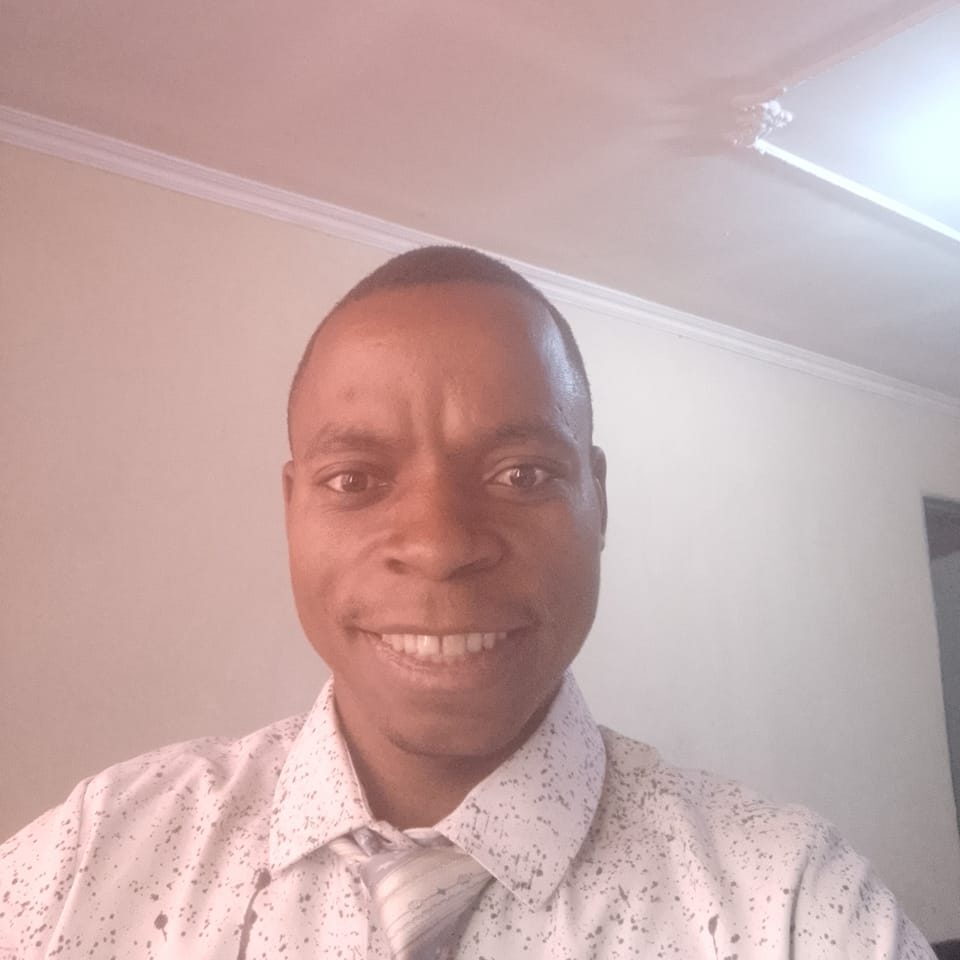
Milemo Lusambya
Country: Malawi
Institution: Let’s Be Transformed University (MAGUFINA)
Project title: Strengthening Urban Climate Resilience: Analyzing Socio-Economic and Institutional Drivers among Refugee Populations in Lilongwe, Malawi
Dr. Milemo Lusambya is a Faculty Member of Urban Planning and Climate Studies at MAGUFINA University. With expertise in urban climate resilience and refugee studies, Lusambya leads research on socio-economic and institutional drivers of climate resilience among refugee populations in Lilongwe, Malawi. As a refugee researcher, he brings both academic expertise and lived experience to his work.
Our research team combines complementary expertise in climate resilience and refugee studies:
Dr. Milemo Lusambya (PI): Urban climate resilience expert with experience working with UNHCR Malawi
Dr. James Lumbani: Social protection systems specialist with extensive refugee program management background at Red Cross Malawi
Dr. Janet Chilemba: Research methodology expert specializing in vulnerable populations research
Together, our team brings strong methodological rigor, practical field experience, and deep understanding of Lilongwe's refugee context.
Our research examines how economic factors and institutional support systems affect climate resilience among refugees in Lilongwe, Malawi. This will contribute to understanding what helps refugees adapt to climate challenges in urban environments, aiming to develop practical recommendations for policymakers and humanitarian organizations to strengthen support systems for these vulnerable communities.
This study will directly improve climate adaptation policies for urban refugees in Malawi, providing evidence-based strategies that humanitarian organizations can implement to enhance resilience among these vulnerable populations facing disproportionate climate risks.
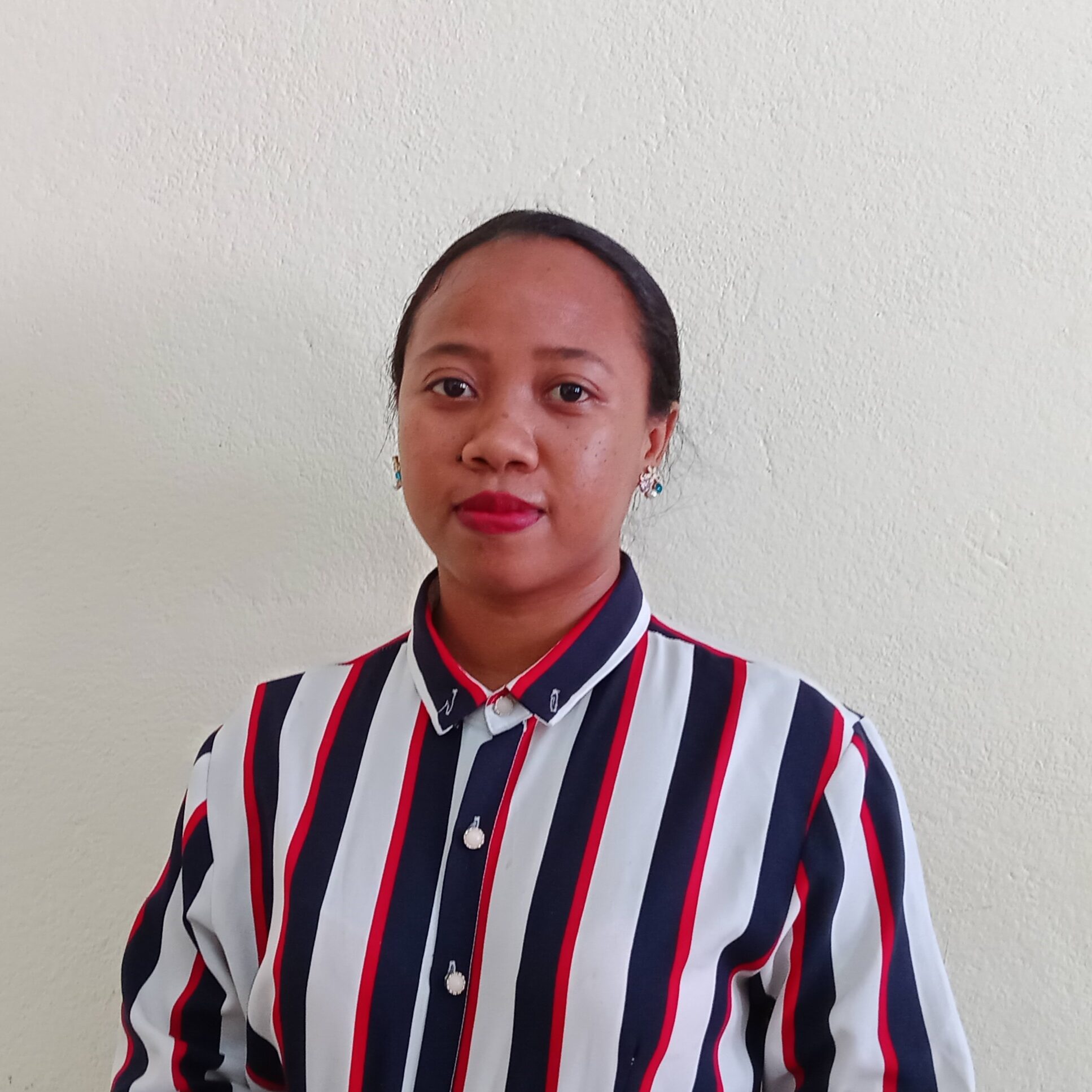
Kanto Ingotiana Razanajatovo
Country: Madagascar
Institution: University of Mahajanga
Project title: Comparing the effectiveness of different financial mechanisms in women’s disaster resilience in the coastal city of Mahajanga, Madagascar
Dr. Kanto Razanajatovo is a lecturer at the University of Mahajanga. Her main research interest is the complex interaction between socio-economic and ecology. She has received funding from international organizations, including for risk and vulnerability assessment of coastal communities facing climate change. She has been at the forefront of reporting to various audiences on the importance of mangroves, ecosystem services and the ecosystem-based approach.
This research aims to identify the vulnerability of women in the coastal city of Mahajanga to climate change and the financial mechanisms they use to face disasters. This will allow to understand how these solutions are accessible, affordable, usable and allow women to continue their livelihoods after the shock.
The results of this study will provide practitioners with evidence-based guidance on the effectiveness of the available financial system in building the resilience of women in Mahajanga. As a result, they will be able to design appropriate interventions and policies that bring real benefits to women.

Dr. Anees Rehman A
Country: India
Institution: Christ College
Project title: Unlocking Climate Resilience: Assessing the Socio-Economic Benefits of Resilience Incentives for Informal Sector Households in Disaster-Prone Indian Cities
Myself, Dr Anees Rehman A. Working as an Assistant Professor, Department of Economics, Christ College, India. I have completed my PhD In Environmental and Disaster Econimics in 2024. My PhD topic was Socio- Economic and Environmental Consequences of Landslide Disaster: An Experience from the Households of Idukki District.
Dr. Dhanya Sai Das (Assistant Professor) St Theresa's College, Department of Economics. India
Dr. Pooja Vardhini S (Assistnat Proessor) S N College, Department of Economics, India
The research will explore the role of resilience incentives in mitigating the economic costs of disasters, with a focus on the informal sector. Bridging the gap between the availability of resilience-building incentives and the actual costs borne by informal sector households in the face of climate shocks is vital for crafting targeted, effective policies. This study aims to provide actionable insights that can inform the development of inclusive and adaptive resilience strategies for informal sector workers, ensuring they are not left behind in climate adaptation efforts. Ultimately, this research seeks to offer viable solutions that address the socio-economic vulnerabilities of informal sector workers in urban India, enabling policymakers and authorities to design more inclusive, equitable, and sustainable resilience programs. By filling this knowledge gap, the study will contribute to more robust climate adaptation frameworks that consider the realities of the informal economy, ensuring that resilience is built in a way that reaches those who need it most.
The results can help guide the creation of evidence-based climate resilience policies, with a special emphasis on the unorganized sector. In order to ensure that informal settlements receive sufficient attention during resilience building and disaster preparedness programs, the research can help urban planning authorities create disaster-resilient infrastructure in these places.
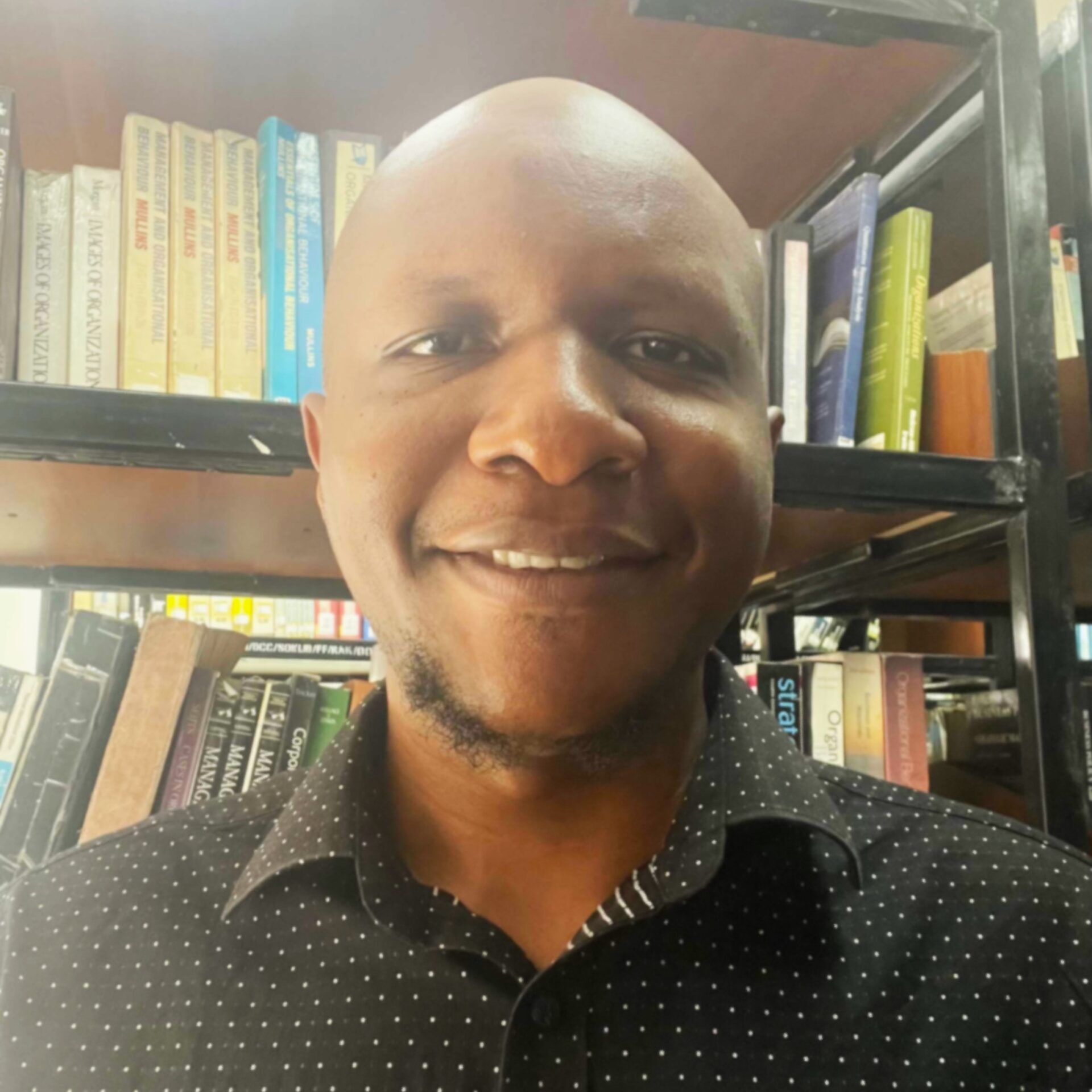
Enock Mwakalila
Country: Tanzania
Institution: Mzumbe University
Project title: Evaluating the Multiplier Effect of Micro-Insurance on Climate Resilience among Motorcycle Taxi Drivers in Dar es Salaam
Enock Mwakalila attained a Bachelor, Master of Arts in Economics at the University of Dar es Salaam and a Ph.D. in applied economics at CUEB. He has engaged in various research and consultancy activities with the TUUNGANE project, Climate Change Impacts on Ecosystem Services and Food Security in Eastern Africa (CHIESA), UWEZO-TWAWEZA, Association of Tanzania Employers (ATE), SOS Children’s Villages Tanzania, TANESCO, Independent Commission for Aid Impact (ICAI) and Research on Poverty Alleviation (REPOA). He was the head of the Research and Consultancy Bureau at the University of Dodoma. Currently, Enock works at Mzumbe University as a Lecturer, Researcher, and Consultant.
Professor Theodory Theobald: is a social scientist focusing on Climate Change Adaptation and water Resources Management. He has a PhD in Geography (Climate Change) from the University of Bonn, Germany. He is a registered environmental expert by National Environmental Management Committee (NEMC) of Tanzania to carryout Environmental Impact Assessment (EIA), Environment Auditing (EA), and Environmental monitoring. Currently, he is an Associate Professor in Climate Change, Mzumbe University, Tanzania.
Ms. Selela Mwakalila, an Assistant Lecturer in Marketing at the University of Dar es Salaam Business School, with expertise in data analysis, research, and strategic communication. With eight years of professional experience, Ms. Mwakalila is skilled in research supervision, particularly in business, entrepreneurship, and financial literacy. Her background includes training in consultancy skills, financial literacy, and entrepreneurship, equipping her to effectively assess and communicate complex financial concepts.
This study explores how micro-insurance helps motorcycle taxi (boda-boda) drivers in Dar es Salaam recover from climate shocks like floods and heavy rain. It examines whether insurance reduces financial losses, stabilizes incomes, and strengthens community resilience. The findings will help policymakers and insurers create better solutions to protect vulnerable workers from climate risks.
This study will provide actionable insights on how micro-insurance enhances climate resilience for informal workers, reducing financial vulnerability and stabilizing incomes. Findings will guide policymakers, insurers, and development agencies in scaling micro-insurance as a climate adaptation tool, benefiting urban low-income communities.

Dr. Maria Ishaq Khattak
Country: Pakistan
Institution: Institute of Public Health & Social Sciences, Khyber Medical University
Project title: Exploring Climate Resilience in a Low-Middle Income Country: The Impact of Socio-Economic Incentives on Informal Workers in Khyber Pakhtunkhwa, Pakistan
Dr. Maria Ishaq Khattak is an Assistant Professor and the Head of the Department of Dental Public Health at Khyber Medical University (KMU), Pakistan. She is the lead developer of the climate change and health module now integrated into the Master of Public Health (MPH) curriculum at KMU. Her research focuses on exploring climate resilience in low-middle-income countries, specifically the impact of socio-economic incentives on informal workers in Khyber Pakhtunkhwa, Pakistan.
Dr. Maria’s dedication to advancing climate research was recently recognized when she was named a finalist for Cohort 4 of the prestigious Women in Science Fellowship, led by the Institute of Global Health and Development at Aga Khan University (AKU) and the University of Oxford. This fellowship highlights her leadership in maternal health, climate change, and sustainable development.
Exploring Climate Resilience in a Low-Middle Income Country: The Impact of Socio-Economic Incentives on Informal Workers in Khyber Pakhtunkhwa, Pakistan
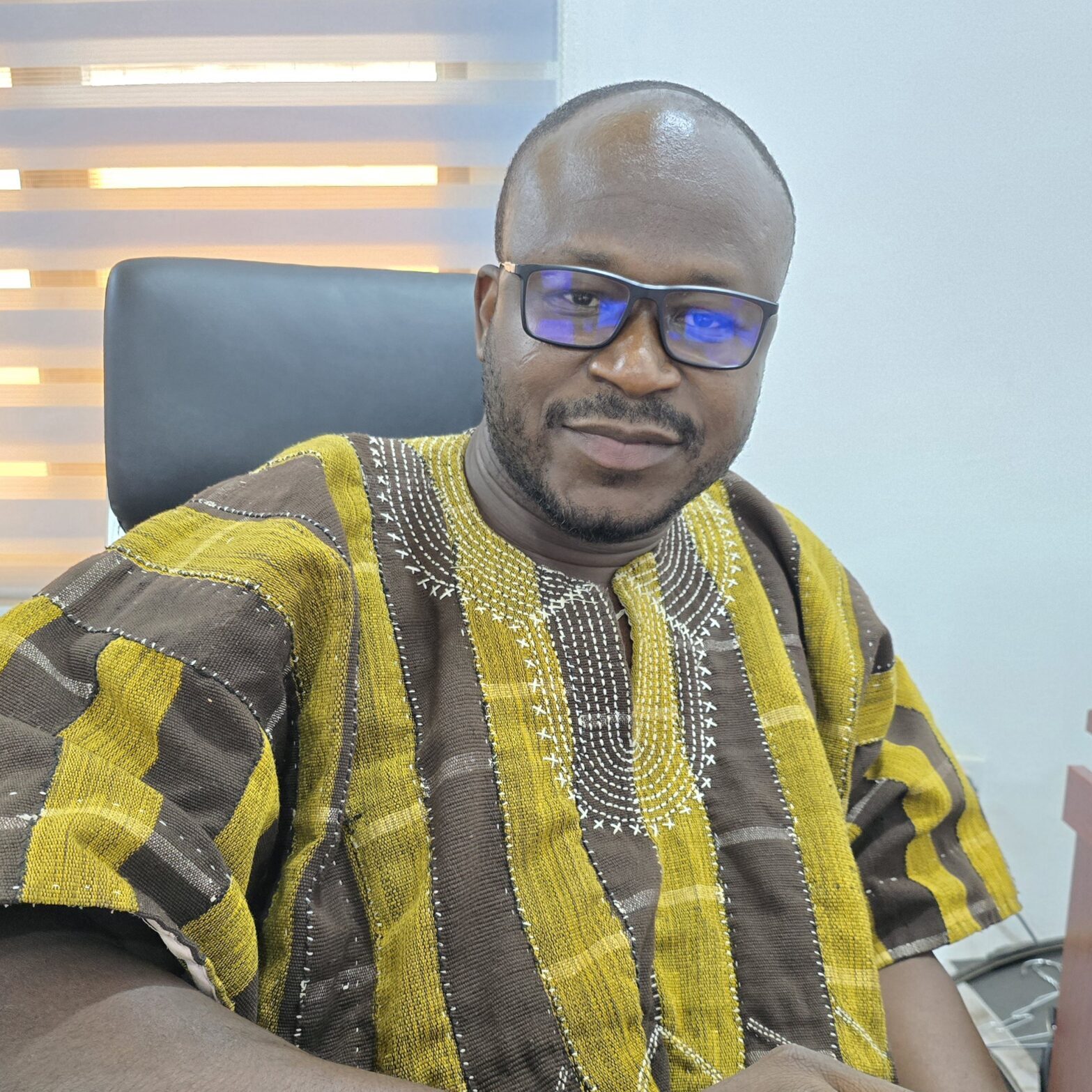
Dr. Zachary Pealore
Country: Ghana
Institution: University for Development Studies
Project title: Assessing Village and Savings Associations (VSLA’s) Contribution to Urban Resilience; Evidence from Northern Ghana
Dr. Zachary Pealore is a distinguished academic and development expert affiliated with the University for Development Studies (UDS) in Tamale, Ghana. A lecturer in the Department of Community Development Studies, he holds a PhD in Social Administration from UDS, an MSc in Infrastructure Planning from the University of Stuttgart, Germany, and a BA in Integrated Development Studies from UDS.
With expertise in both qualitative and quantitative research, Dr. Pealore specializes in participatory development approaches. He has extensive experience in project and program management, livelihoods and entrepreneurship development, climate change adaptation, agricultural value chains, and gender and financial inclusion.
His deep commitment to sustainable development makes him a key figure in academia and development practice in Ghana and beyond.
Dr. Zachary Pealore is a Lecturer at the University for Development Studies. His main areas of specialization focus on participatory approaches and livelihoods development, food security, climate change adaptation and mitigation and peacebuilding. He is also a development consultant to many state and non-state development actors.
Ms. Zuweira Yakubu is a Senior Program Officer with LINK – Ghana, a National Non-Governmental Organisation focused on the design and implementation of livelihoods and financial inclusion programs, peace building and cooperative programming. Her research focuses is on gender, livelihoods and climate change adaptation and mitigation.
Mr. Richard Adusei is a lecturer at the University for Development Studies, specializing in computer science and IT. He holds an MPhil in Computational Mathematics and a BSc in Computer Science. With expertise in programming, data analysis, and cloud computing, he has contributed to academic research and system development, including a RESTful API for UDS.
Mr. Adonija Loriba is a development planning student at KNUST with experience in research, project coordination, and community engagement. He has worked with NGOs on climate resilience, women’s empowerment, and urban planning projects. Skilled in data analysis, leadership, and teamwork, he aims to drive sustainable development.
This research explores how Village Savings and Loan Associations (VSLAs) help urban communities in Northern Ghana cope with climate change. Many low-income people lack access to banks, making it hard to save or get loans. VSLAs offer a way to save money, access credit, and support each other. The study will assess how these groups improve financial security and help people recover from floods and heatwaves. The findings can guide policies to strengthen community resilience.
The study can help policymakers and organizations strengthen VSLAs to improve financial security and climate resilience in urban areas. It offers insights on supporting low-income communities, guiding development programs, and enhancing local adaptation strategies to climate change, ultimately fostering sustainable urban growth.
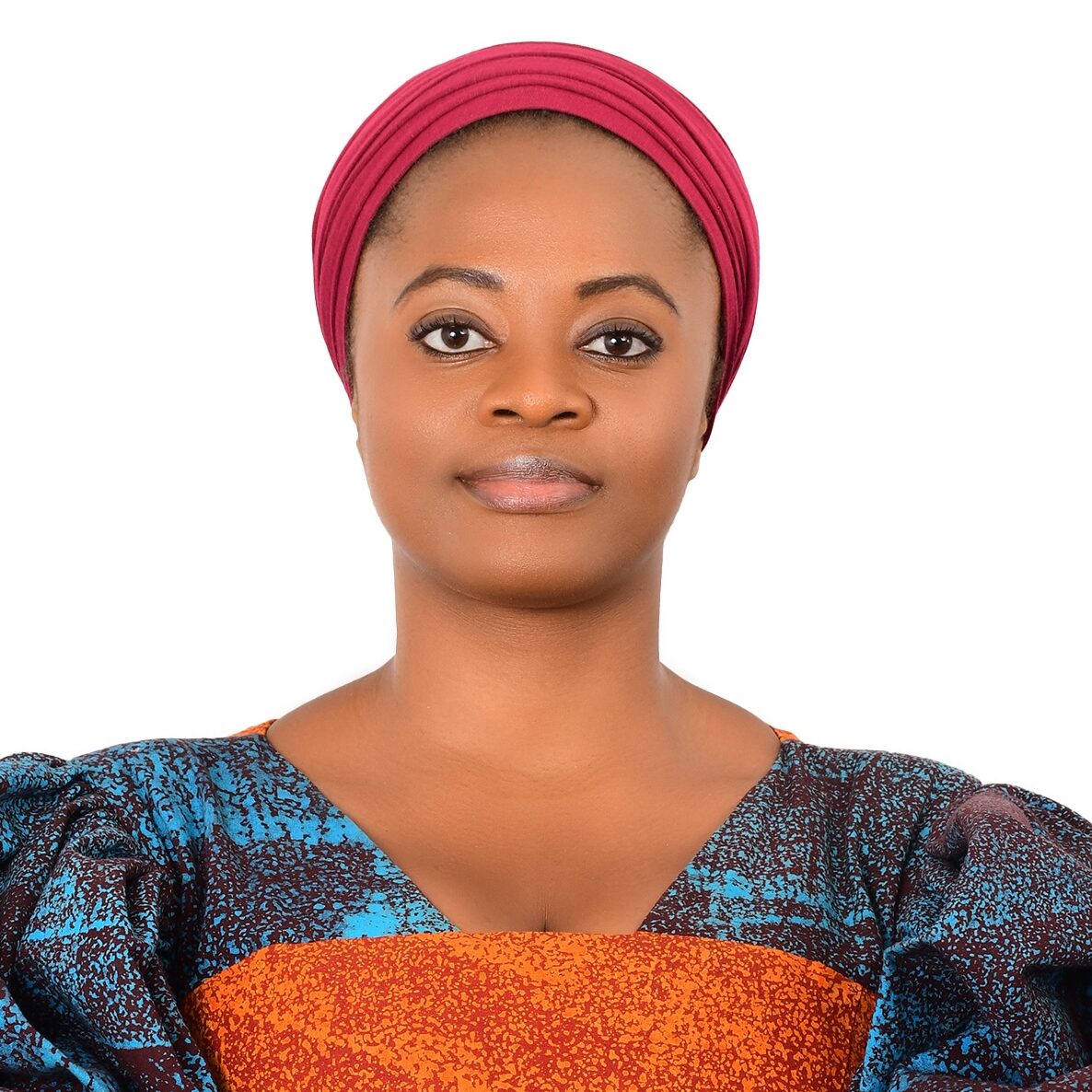
Josephine Agbeko
Country: Ghana
Institution: Michigan Technological University
Project title: Developing a Participatory Urban Planning Model to Improve Urban Climate Governance for Flood Resilience in Informal Settlements in Accra.
Josephine Agbeko is a Ghanaian PhD student in Environmental and Energy Policy at Michigan Technological University. She has extensive experience collaborating with municipal, civic, and community leaders in African cities, highlighting her interest urban climate governance systems in the region. Using people-centred research, her transformative, interdisciplinary efforts seek to expand the evidence base necessary for effective vulnerability reduction strategies in urban African communities.
Dr. Dan Shtob is an Assistant Professor of Sustainability and Health at Michigan Technological University. His interests span natural disasters, environmental planning, and mental health. He enjoys leading interdisciplinary groups and has advised several student researchers in these areas.
Over the past four decades, flooding has emerged as Ghana’s most frequent natural disaster, with alarming future flood risk and exposure profiles in its capital, Accra. The city’s current flood response strategies mainly focus on technical solutions with little attention to social governance. This narrow focus overlooks social and environmental complexities of urban disaster risk, undermining response efforts, jeopardizing technical or engineered solutions, and disproportionately affecting the informal settlements where a majority of Accra’s population resides. This project explores how participatory urban planning can strengthen flood resilience efforts in informal settlements, complementing technical approaches by engaging with affected community members and public officials.
Our research centers on participatory planning for urban African climate governance. By developing new models that integrate social and technological factors, we aim to provide guidance to public officials, local leaders, and community members that reflects the unique complexities of each metropolis.

Jacob Malama
Country: Zambia
Institution: University of Gothenburg
Project title: Equitable Urban Climate Action: Integrating Disability-Inclusive Plans into School Disaster Preparedness.
Jacob Malama is a PhD researcher in Education at the University of Gothenburg. He holds a B.Ed. in Adult Education with Mathematics and an MSc in Educational Research. With over six years of experience in research methodology, he specializes in both qualitative and quantitative research approaches. He has extensive professional experience as a mathematics teacher and in conducting research on educational inclusion. His research interests include refugee education, climate change, and the integration of disability-inclusive strategies into education systems.
Victor Saidi Phiri is a Data Analyst at the University of Gothenburg with expertise in quantitative data analysis and R programming. He holds a Bachelor’s degree in Social Work, a Postgraduate degree in Monitoring and Evaluation, and a Master’s in Social Scientific Data Analysis. Victor has experience working as a Social Worker and a Monitoring and Evaluation Officer with SOS Children’s Villages International (Zambia). His research interests focus on climate change, and he has conducted research in this area, applying advanced data analysis techniques to generate impactful insights.
Annie Malama is a governance specialist and mainstreaming planner with over six years of experience at the Ministry of Local Government in Zambia. She holds multiple advanced degrees, including a Master’s in Public Health, Political Science, Social Sciences, and Global Management. Currently serving as a Project Coordinator for a USAID-funded project, she has led initiatives integrating gender-sensitive approaches and human rights considerations into health policies. Annie is highly skilled in research, policy analysis, and project coordination, with proficiency in SPSS, NVivo, Stata, and Microsoft Office Suite.
Professor Masauso Chirwa is an academic at the University of Zambia with extensive expertise in social policy and social work. He holds a PhD in Social Policy and Social Work and has made significant contributions to research in social protection, child protection, and disability, influencing policy development for the Zambian Government. In addition to his role at the University of Zambia, Professor Chirwa serves as a guest professor in social protection at Bonn-Rhein-Sieg University of Applied Sciences in Germany and supervises postgraduate students at the University of Michigan in the United States. He has mentored numerous PhD and Master’s students and will provide technical support and supervision throughout the project.
My project aims to make urban school disaster preparedness plans more inclusive for students with disabilities, especially in the context of climate-related disasters. The study will assess how well current school disaster plans in Western Province, Zambia, a region prone to climate-induced disasters, address the needs of students with disabilities and identify areas for improvement. The goal is to identify gaps in policy and practice and provide practical recommendations to make school disaster plans more inclusive and effective. Ultimately, the study seeks to ensure that all students, regardless of their abilities, are adequately protected and supported during climate-related disasters.
This study can benefit society by ensuring students with disabilities are better protected during climate-related disasters. By improving disaster preparedness plans in schools, it promotes equity, inclusion, and safety for all students, especially the vulnerable. The findings can guide policy reforms and improve disaster response efforts, fostering a more inclusive society.

Anshu Ogra
Country: India
Institution: Indian Institute of Technology Delhi (IITD)
Project title: Risk Governance or Risky Governance? Delhi's Urban Utility Governance Landscape and Heatwaves
My research is on the intersection of climate change adaptation and Disaster Risk Reduction, examining different types of disaster management plans. I evaluate their effectiveness by studying various public governance institutions such as scientific administrative bodies and public utility agencies. The goal is to promote a transformative approach to risk reduction that strengthens climate change adaptation efforts.
The core research team for this project consists of one research associate, who will join soon after the selection process, and myself. Our work will closely involve looking at the Delhi Jal Board (Waterworks department) and the Municipal Corporation of Delhi (MCD). These organizations collectively oversee the provision of essential amenities across a significant portion of Delhi.
This project examines how Delhi’s urban utility governance, particularly the Delhi Jal Board (DJB) and the Municipal Corporation of Delhi (MCD), influences heatwave vulnerability. It maps institutional structures, power dynamics, and service delivery gaps to understand governance blind spots. Using institutional mapping and stakeholder engagement, the study aims to improve disaster risk governance by fostering a more integrated and effective Heat Action Plan for Delhi.
This research helps society by identifying governance gaps that increase vulnerability to heatwaves. By mapping institutional roles and service delivery issues, it informs policies for better resource access, fosters coordination among agencies, and enhances disaster preparedness, ultimately protecting at-risk communities.
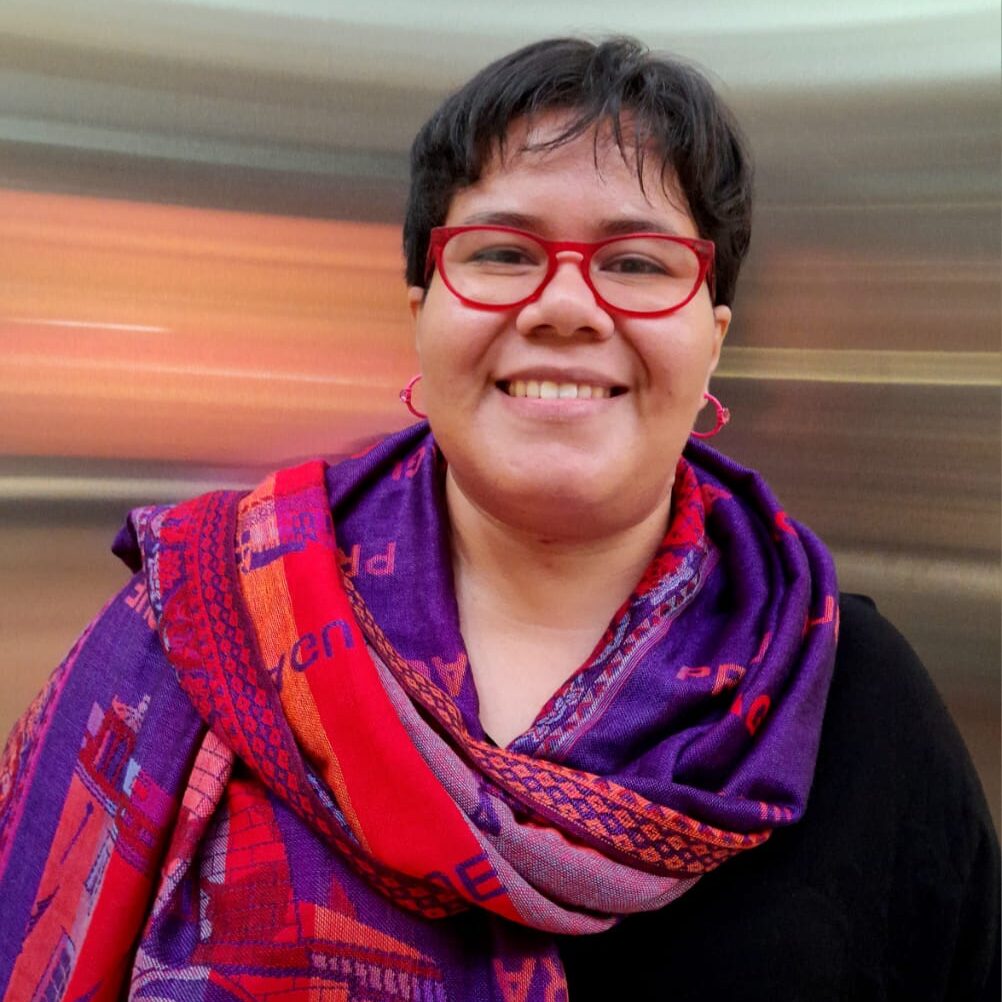
Angelina Trinidad-Da Silva
Country: Paraguay
Institution: Universidad Nacional de Asunción
Project title: Gobernanza climática y gestión del riesgo: Análisis institucional comparativo en tres ciudades paraguayas clave
Sociologist, PhD in Geography, specialist in disaster risk management and reduction. Innovation manager. Research focus: collective action in the context of climate uncertainty. Education in emergencies. Gender and disasters.
María Victoria Zavala Saucedo from Ciudad del Este, who contributes her expertise in research methodology, institutional analysis, and deep knowledge of Paraguay's educational and public management context.
Jorge Martín Vera from Encarnación, who adds over 20 years of practical experience in disaster risk management and reduction, currently serving as Director of Disaster Risk Management and Reduction for the Municipality of Encarnación and Vice President of the Departmental Emergency Committee of Itapúa.
Research project analyzing climate governance in three Paraguayan cities (Asunción, Ciudad del Este, Encarnación), using mixed methods to study institutional frameworks and adaptation strategies. Addresses research gaps on intermediate cities' climate responses despite resource limitations. Outputs include institutional strengthening guides, adaptation indicators, and coordination recommendations benefiting local governments and civil society organizations, while contributing valuable empirical evidence for similar Latin American contexts.
The project generates practical knowledge that benefits society through: tools for municipal governments, vulnerability maps for urban planners, mechanisms to strengthen citizen participation, and concrete products (guides, indicators, and recommendations) designed in accessible formats to improve urban climate risk management.
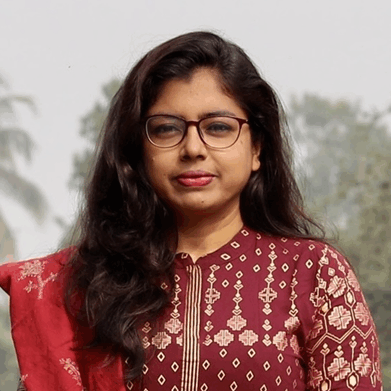
Uswatun Mahera Khushi
Country: Bangladesh
Institution: Jatiya Kabi Kazi Nazrul Islam University
Project title: Leveraging Governance Innovation for Urban Climate Resilience: Strengthening Municipal Fiscal Autonomy in Bangladesh
From my foundational degrees in urban planning at Jahangirnagar University to my current role as Assistant Professor at Jatiya Kabi Kazi Nazrul Islam University, my decade-long career has been dedicated to understanding and addressing urban challenges, particularly those related to climate change. This experience, coupled with my ongoing doctoral research focused on Municipal Finance, reinforces my specialisation in infrastructure development, city planning, and climate risk management. Beyond academia, I advocate for evidence-based climate action through editorials in leading Bangladeshi newspapers. My research and advocacy are driven by a commitment to delivering meaningful urban climate resilience solutions in Bangladesh.
As Senior Co-Investigator, Md. Zahurul Al Mamun brings 15 years of a diverse portfolio of experience, complemented by five years as a freelance research analyst specialising in climate change. His dedication to evidence-based solutions for sustainable development and environmental governance in Bangladesh is fueled by strong analytical skills, cultivated through both research and climate activism. His dedication to insightful analysis is evident in his persuasive editorial writing, evidenced by over 50 articles in leading newspapers, aimed at fostering climate awareness and action.
A valuable addition to the research team as Junior Co-Investigator, A.B.M. Siddiqul Abedin is an urban and regional planning graduate with five years of practical experience in research, complemented by his current role as a GIS consultant. As an Associate Member of the Bangladesh Institute of Planners and recipient of the prestigious ICIMOD Geospatial Research Fellowship in 2023, he's blend of hands-on research experience and specialised GIS skills will be instrumental to the project's data collection and spatial analysis components.
My research addresses the dual crisis facing Bangladeshi municipalities: rapid urbanization and escalating climate risks, exacerbated by weak fiscal autonomy and outdated governance. Recognizing governance reform as imperative, this study explores governance innovation to enhance urban climate resilience through fiscal decentralization and improved municipal finance. It focuses on digital tools, adaptive frameworks, and public accountability mechanisms to empower small and medium municipalities—crucial for national resilience. Aiming to deepen understanding of urban governance's climate risk management role, this research identifies practical pathways towards autonomous, resilient and sustainable urban futures, enabling municipalities to effectively manage climate risks and drive sustainable growth.
This research will offer actionable pathways for Bangladeshi municipalities to achieve tangible climate resilience. By focusing on governance innovation and fiscal empowerment, it strives to equip urban centres to proactively manage escalating climate threats. The impact lies in enabling municipalities to become autonomous and sustainable urban centres. This transformation will not only enhance local resilience but also position cities as key engines of sustainable national development, driving climate-adapted growth across Bangladesh.
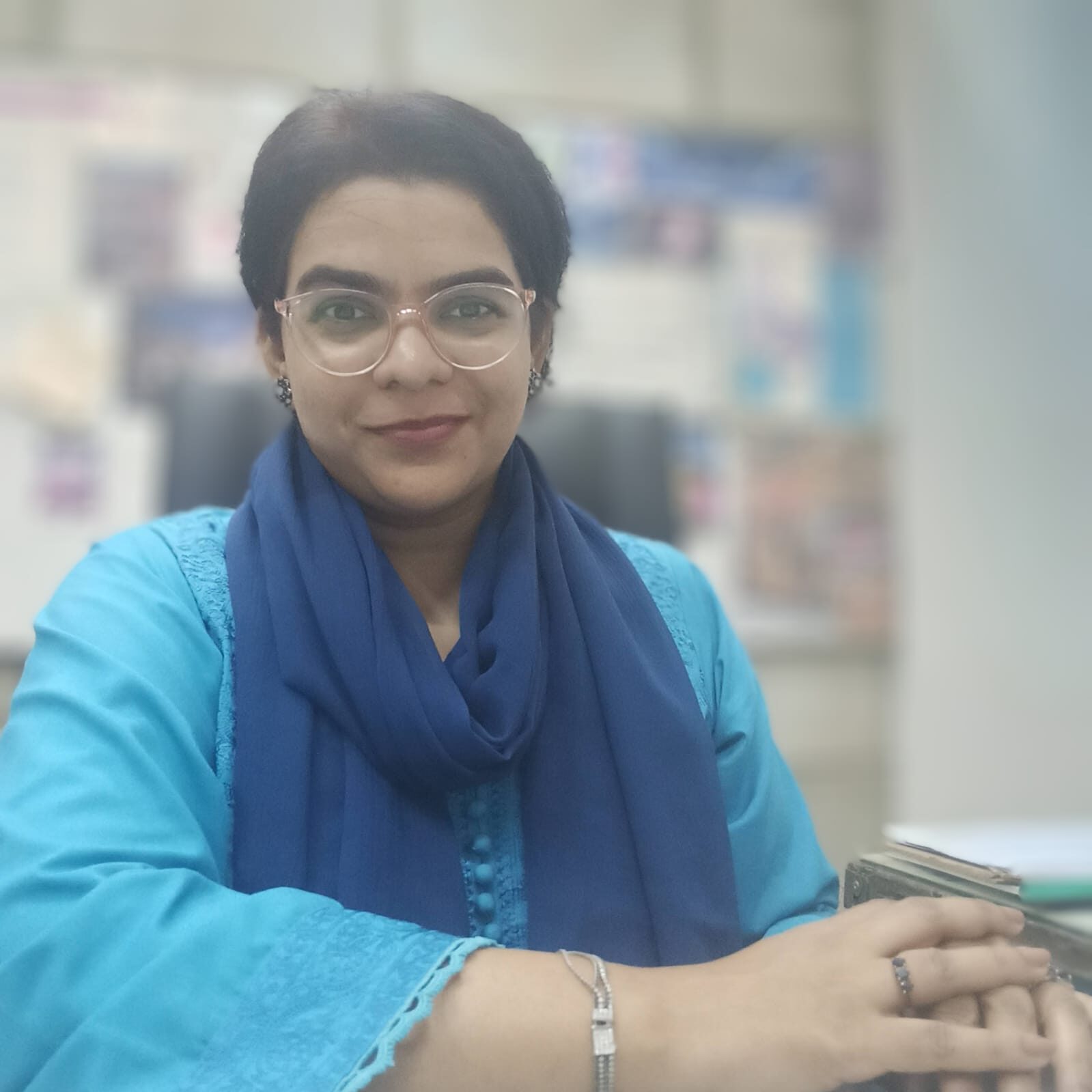
Sarah Ather Khan
Country: Pakistan
Institution: NED University of Engineering and Technology
Project title: Integrating Indigenous Knowledge with Formal Governance for Enhanced Disaster Resilience in Urban Coastal Areas- Case of Karachi Pakistan
Sarah Ather Khan holds a Bachelor's degree in Architecture and a Master's in Urban and Regional Planning. She has been a part of the NED University Department of Architecture and Planning since 2009, initially as a lecturer and later as an Associate Professor since 2018. She is also pursuing a PhD in Urban and Regional Planning at NED University. Her expertise in urban studies and planning methods is evident in her teaching and research work.
Sarah's research and professional background are deeply rooted in her thorough exploration of Karachi's coastal settlements. She has supervised several graduate theses and research projects focusing on the fisherman communities in key areas such as Manora Island, Baba and Bhit Islands, and various fishing villages like Salehabad, Rehri Goth, Ibrahim Hyderi, and Mubarak Village. This extensive work has equipped her with a rich understanding of the social, economic, physical, governance, and environmental dynamics of these coastal communities.
She co-edited Karachi - A Selected Bibliography and authored Exploring Inclusive Tourism Development – Case Study of Beachfront Development in Manora, Pakistan, published in the Journal of Xi'an Shiyou University. Sarah has also contributed articles to newspapers in Pakistan including The Express Tribune, The News-Shehr, Dawn EOS, and ARCHITIMES Magazine, showcasing her ability to compile and analyze relevant literature and demonstrating her in-depth understanding of coastal areas and sustainable development in Karachi. Her research is further supported by her participation in workshops focused on socio-ecosystems and local knowledge that align with her interest in integrating Indigenous Knowledge into governance frameworks.
With a strong academic background, significant teaching and research experience, and a commitment to community and professional development, Sarah is well-prepared to explore the integration of Indigenous Knowledge for disaster resilience in urban coastal areas, particularly in Karachi. Her previous work underscores her ability to address complex urban issues through a multidisciplinary approach.
Co-Investigator (Co-PI): Dr. Saeed Ud Din Ahmed
Dr. Saeed Ud Din Ahmed, an Associate Professor at NED University, is a distinguished scholar in architecture, urban planning, and sustainable development. His research has spanned urban informality, climate governance, and SDG-aligned planning. His PhD focused on informal land controls in Karachi, followed by collaborative research on urban informality with Cardiff University. He has also worked with Tokyo University and the British Asian Trust on governance and urban services like water and transport. His recent work on climate governance, particularly with C40 Cities and UNDP’s Karachi Climate Action Plan (KCAP), underscores his expertise in integrating informal systems into formal planning frameworks. Dr. Ahmed’s contributions will be instrumental in bridging Indigenous knowledge with urban governance for disaster resilience.
International Collaboration: Dr. Abid Mehmood
Dr. Abid Mehmood, a Senior Lecturer in International Planning and Sustainability at Cardiff University, brings nearly two decades of experience in climate resilience, urban planning, and disaster governance. His extensive research includes Planning for Climate Change (2009) and Planning for Urban Resilience (2016), along with a critical analysis of Pakistan’s disaster management structures (Disaster Prevention and Management, 2016). Following the devastating 2022 floods in Pakistan, he co-led a Royal Academy of Engineering UK-funded project on urban resilience with Dr. Ahmed, launching an international competition to design climate-adaptive, net-zero, and affordable housing solutions for the Global South. His deep understanding of Karachi’s climate challenges and expertise in resilience policies make him an invaluable contributor to this research.
Together, this team combines local and global expertise to explore how Indigenous knowledge can enhance disaster resilience in urban coastal areas, ensuring a more inclusive and sustainable approach to climate adaptation.
This research explores how Indigenous knowledge can improve disaster resilience in Karachi’s coastal areas. It examines local practices for coping with climate threats like flooding and storms and how they can be integrated with formal governance. By mapping traditional knowledge, analyzing its role in policies, and developing a participatory framework, the study aims to create more inclusive, community-driven climate resilience strategies, contributing to global discussions on disaster management.
This study empowers coastal communities by integrating their traditional knowledge into disaster policies, making responses more effective and locally relevant. It fosters resilience, strengthens collaboration between governments and residents, and promotes equitable climate action, ultimately helping societies adapt to growing environmental challenges.

Dr. Stephen Balaka Opiyo
Country: South Africa
Institution: North-West University
Project title: Evaluating the Role of Local Governments in Climate Governance in Sub-Saharan Africa: A Comparative Study of Mahikeng City (South Africa) and Kisumu City (Kenya)
Dr. Stephen Opiyo is a Postdoctoral Fellow in Climate Change Science with the Climatology Research Group (CRG) at North-West University (NWU), South Africa. His research focuses on climate change impacts, vulnerability and adaptation. He earned his PhD in Environmental Planning and Management from Kenyatta University, Kenya. Dr. Opiyo is an advocate for interdisciplinary collaboration and has published several peer-reviewed articles in high-impact journals.
Prof Roelof Burger, a professor of atmospheric sciences and climate change at the School for Geo- and Spatial Sciences in North-West University (NWU), South Africa. He has more than 15 years of experience in this field and has been part of more than 50 research projects in South Africa, Namibia, Mali, Libya, the United Arab Emirates, Saudi Arabia, India, Australia, Italy, France, Thailand and the United States.
Dr. Godwin Opinde, a lecturer at the Department of Spatial & Environmental Planning in Kenyatta University (KU), Kenya. His research specializes in environmental planning with a focus on climate change adaptation and mitigation. He has worked on various projects for international organizations including The World Bank Group, African Development Bank (AfDB) and UN Environment.
Niké Jacobs, a senior lecturer in urban and regional planning at the North-West University (NWU), South Africa. Her epistemic research interests include the quality of life, community engagement, climate change and air quality management. She's been involved in various projects in South Africa on these areas of interests.
Our research project evaluates the role of local governments in climate governance in Sub-Saharan Africa, examining how they address urban climate challenges and promote resilience. Using Mahikeng City (South Africa) and Kisumu City (Kenya) as case studies, we identify both successes and challenges in governance structures and strategies.
This study is expected to produce policy briefs for the two cities, providing recommendations for designing and implementing effective and equitable climate action initiatives based on best practices and lessons learned. Additionally, the findings will advance scholarly understanding of urban climate resilience in Sub-Saharan Africa, contribute to theoretical frameworks on the topic, and inspire future research.

Michael Kpessa-Whyte
Country: Ghana
Institution: University of Ghana
Project title: Evaluating the Impact of Social Protection Policies on Urban Climate Resilience in Ghana: A Comparative Analysis of Formal and Informal Settlements
Prof. Kpessa-Whyte is a comparative public-policy scholar whose career spans academia, public service and high-level governance. Trained in Ghana and Canada (University of Ghana, BA, PhD, McMaster; MA, Brock) with post-doctoral work at the University of Saskatchewan, he has published more than 40 peer-reviewed articles on social policy, institutional reform and African political economy and co-edited the 2024 volume Public Policy in Ghana: Conceptual Insights (Palgrave). His previous public appointments include Acting Executive Director of the National Service Scheme and Senior Presidential Staffer at the Office of the President. As Director-General of SIGA he oversees the performance of over 175 state-owned enterprises, bringing hands-on experience in governance, accountability and large-scale programme implementation—skills that underpin the present GDPC-supported research. Professor Kpessa-Whyte has won numerous awards and grants, including a Social Sciences and Humanities Research Council (SSHRC-Canada) post-doctoral fellowship; the University of Ghana’s “Most Promising Young Researcher” prize; an Open-Society grant for pan-African research on social policy in post-covild-19 Africa, and funding for Digitalization from INCLUDE, a Dutch-African Research Platform. He frequently advises Ghana’s ministries on social-protection reforms, serves on international panels on adaptive social protection, and mentors early-career scholars across Africa.
Dr. Michael Gameli Dziwornu, Research Scientist, CSIR- Institute for Scientific and Technological Information. His research interests include urban geography, urban resilience, informality.
Fred Fosu Agyarko, Assistant Research Scientist, CSIR- Institute for Scientific and Technological Information, and Doctoral Candidate in Statistics, University of Ghana, Legon. His research interests include research methods, statistics of extremes, data analysis and management.
Evaluating the Impact of Social Protection Policies on Urban Climate Resilience in Ghana: A Comparative Analysis of Formal and Informal Settlements is an 8-month mixed-methods study funded by the Global Disaster Preparedness Center (GDPC) research grants programme. It asks a simple but urgent question: Do Ghana’s flagship social-protection programmes—especially the Livelihood Empowerment Against Poverty (LEAP) cash transfer—actually make city dwellers safer and more adaptive in the face of floods, heat waves and other climate shocks?
To answer it, the team will survey households across five Accra neighbourhoods (both planned and informal), combine those data with GIS hazard maps, and follow up with key-informant interviews and focus-group discussions. The design lets us (1) quantify differences in absorptive, adaptive and transformative capacities across settlement types; (2) trace how programme design, governance bottlenecks and community initiatives mediate those outcomes; and (3) generate concrete, evidence-based recommendations for shock-responsive cash top-ups, climate-smart public works and stronger state–community collaboration.
Ultimately, the project will equip Ghana’s Ministry of Gender, Children and Social Protection, city authorities and civil-society partners with a practical roadmap for aligning poverty-reduction spending with urban-resilience goals—insights that will also be relevant to other rapidly urbanising countries across sub-Saharan Africa.
The potential impact of knowledge generated from cash transfer programs in informal urban economies is significant and multifaceted, particularly in the context of resilience to climate-related challenges in cities like those in Ghana. It is anticipated that evidence from the study will show how cash transfers and climate-smart public works boost flood- and heat-resilience in Ghana’s cities, guiding better social-protection budgets and helping urban poor communities adapt—insights replicable across Africa. Ultimately, the knowledge generated from the study would illustrate the critical interplay between economic support and climate resilience in urban settings. This is particularly so because, as communities adapt to increasingly volatile environmental conditions, the role of cash transfers becomes even more vital. As such by empowering individuals, informing policy, stimulating local economies, and offering replicable solutions, cash transfer programs can significantly enhance the resilience of urban poor communities against the challenges posed by climate change, and this is a benefit society can get from this study.
Topic 3: Urban Ecosystems for Resilience
- Topic 3.1: Climate-Resilient Urban Ecosystem. What constitutes a climate-resilient urban ecosystem, its key features and components, how it functions, and how it can be cultivated or restored in different urban contexts.
- Topic 3.2: Community-based approaches to Nature-Based Climate Solutions. Assessing effectiveness and strategies for implementing and scaling impactful nature-based solutions at the local level in urban areas.
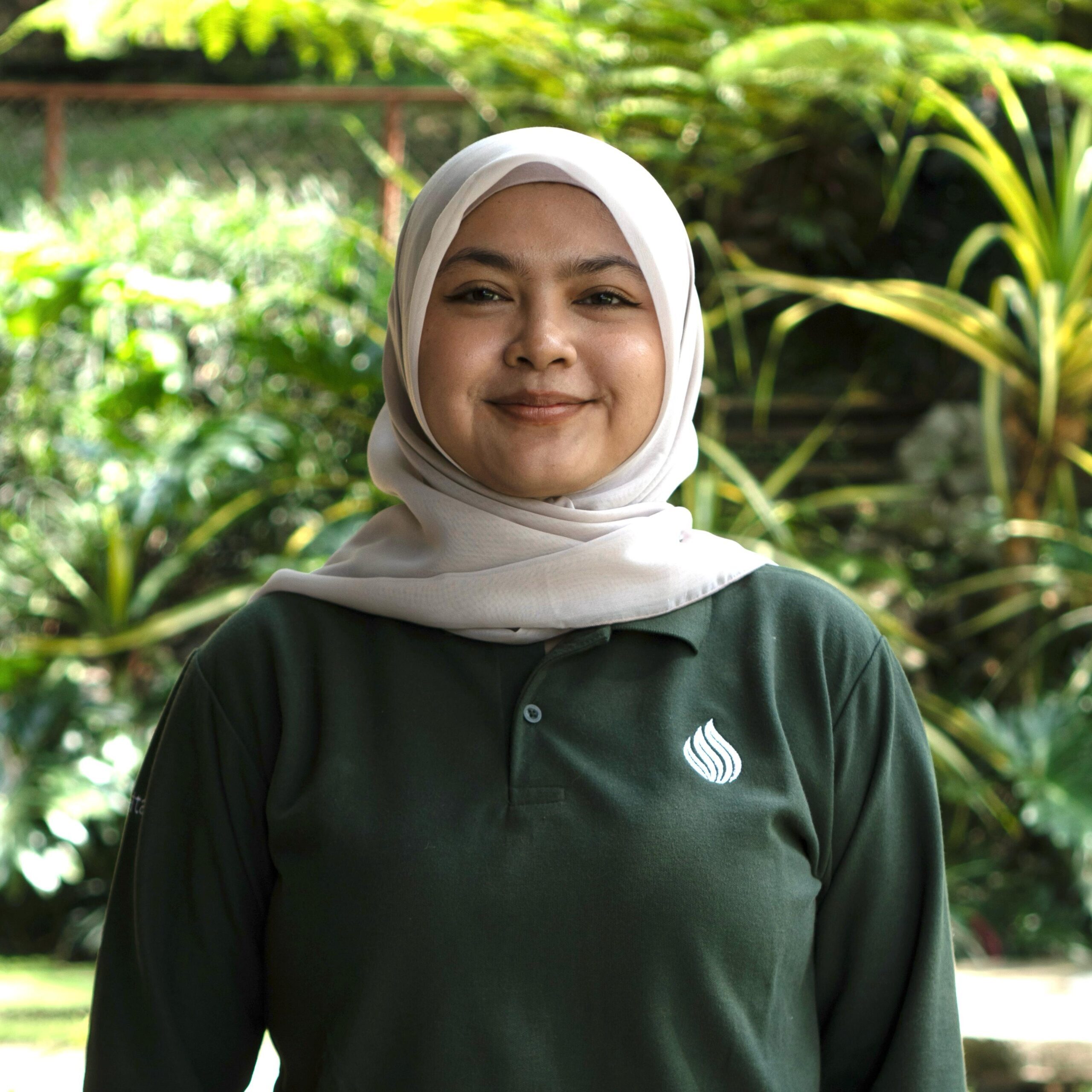
Dyah Ayu Retnowati
Country: Indonesia
Institution: Institut Teknologi Bandung
Project title: Redefining Urban Riparian Zones in Bandung: Integrating Ecosystem Services Approach and Suitable Vegetation Identification to Flood Risk Reduction
I am currently a Ph.D. student at the Institut Teknologi Bandung, Indonesia, majoring in Geodesy and Geomatics Engineering. My research focus is on disaster risk assessment. In addition, I am actively involved in work and research related to environmental studies, such as ecosystem services assessment as well as environmental carrying capacity. Therefore, besides being a Ph.D. student, I am also a member of the Yayasan LOKAHITA (Lokus Bijak Hijau Lestari), an organization engaged in geospatial environmental studies, which serves as a platform to support my research interests. Furthermore, I am part of the research team for several lectures at my university.
My exposure to disaster risk assessment began during my undergraduate thesis research and continued into my master's studies. At that time, my research focused on assessing earthquake and volcanic disaster risks concerning potential losses from building damage. However, in my current dissertation, I am exploring a new yet related aspect of disaster risk assessment—evaluating flood and drought risks concerning food security, particularly in the context of food availability.
Jesika Taradini. She is a geospatial scientist with an M.Sc. in Geodesy & Geomatics Engineering and over 7 years of specialized experience in GIS, spatial data management, and environmental modelling, with a strong focus on population and land-use modelling, ecosystem services mapping, environmental carrying capacity analysis, and Strategic Environmental Assessment (SEA). Jesika also serves as an adjunct lecturer at Parahyangan Catholic University and holds a Master’s degree from Institut Teknologi Bandung (ITB), with a focus on spatial analysis and sustainability research.
Salsabilla Nur Feranti. She is an expert in terms of Landscape and Biodiversity Management, and Conservation Planning. She obtained her Bachelor’s degree in Forestry Engineering from the Institut Teknologi Bandung, and later earned her Master’s degree in Biomanagement from the same institution, as well as from the Graduate School of Agriculture at Kyoto University. Her academic interests lie in biodiversity management and conservation.
Hana Afifah Amini. She is an academic qualification in urban and regional planning and transportation planning with expertise in urbanization, city resilience, decarbonization and sustainable transport. Her current research is focusing on decentralization of metropolitan, urban ecology and sustainable transport planning. She holds a Master of Engineering degree in Global Engineering for Development Environment and Society with focus in sustainable transport studies from the Tokyo Institute of Technology, Japan (graduated in 2019), and a Bachelor's degree in Urban and Regional Planning from the Bandung Institute of Technology (graduated in 2015).
Bandung City, the third most populous city in Indonesia, has grown become a very important center, demonstrating a higher economic growth rate than the national average. As the flood-prone area, Bandung City have become more vulnerable to flooding due to the rapid urbanization, which frequently disregards the importance of sustainable environmental management. The urbanization-induced the lack of land for housing results in the occupation of riverbanks, which may subsequently turn into slums. Meanwhile, utilizing riverbanks as riparian areas can help reduce the risk of flooding. Riparian zones play a crucial role in moderating floods by retarding water flow, trapping sediment, and increasing infiltration. Therefore, this study attempts to analyze the conditions along the rivers in Bandung City to provide recommendations regarding riparian zones. In formulating these recommendations, an assessment of ecosystem services and social factors along the river was conducted. The use of the ecosystem services emphasizes understanding the ecosystem value provided by the natural environment, such as water regulation, habitat and biodiversity, and disaster prevention. The ecosystem services approach can be used as an integrated framework to see the ability of nature to provide services for human interests based on the characteristics of its area, which in this research focuses on the use of riverbanks as riparian zones. This study not only identifies riparian zones but also assesses the land suitability for vegetation planting within each designated riparian zone. By performing this analysis, it is expected that riparian zones will become more efficient in reducing the risk of flooding, for example, through an accelerated water absorption rate.
This research can potentially support Bandung City in sustainable urban planning by developing nature-based solutions (NbS), specifically targeting climate change adaptation, with a focus on flood risk reduction. Green open spaces along riparian zones play a critical role in reducing flood risk and mitigating climate change impacts, which can inform the preparation of Spatial Plans (RTRW) and their derivative plans.
Recommendations for riparian zoning in the RTRW, along with suitable vegetation recommendation, could provide valuable guidance for communities, local groups, NGOs, and others interested in undertaking environmental actions, such as planting activities.
The spatial modeling methods for ecosystem services assessment, incorporating social conditions, and suitable vegetation analysis employed in this study can serve as a model for other cities in Indonesia facing similar challenges. This approach aims to promote cross-sector collaboration to expand green open spaces and strengthen community resilience against climate change impacts, especially flooding, thereby fostering cities that are more inclusive, adaptive, and sustainable.
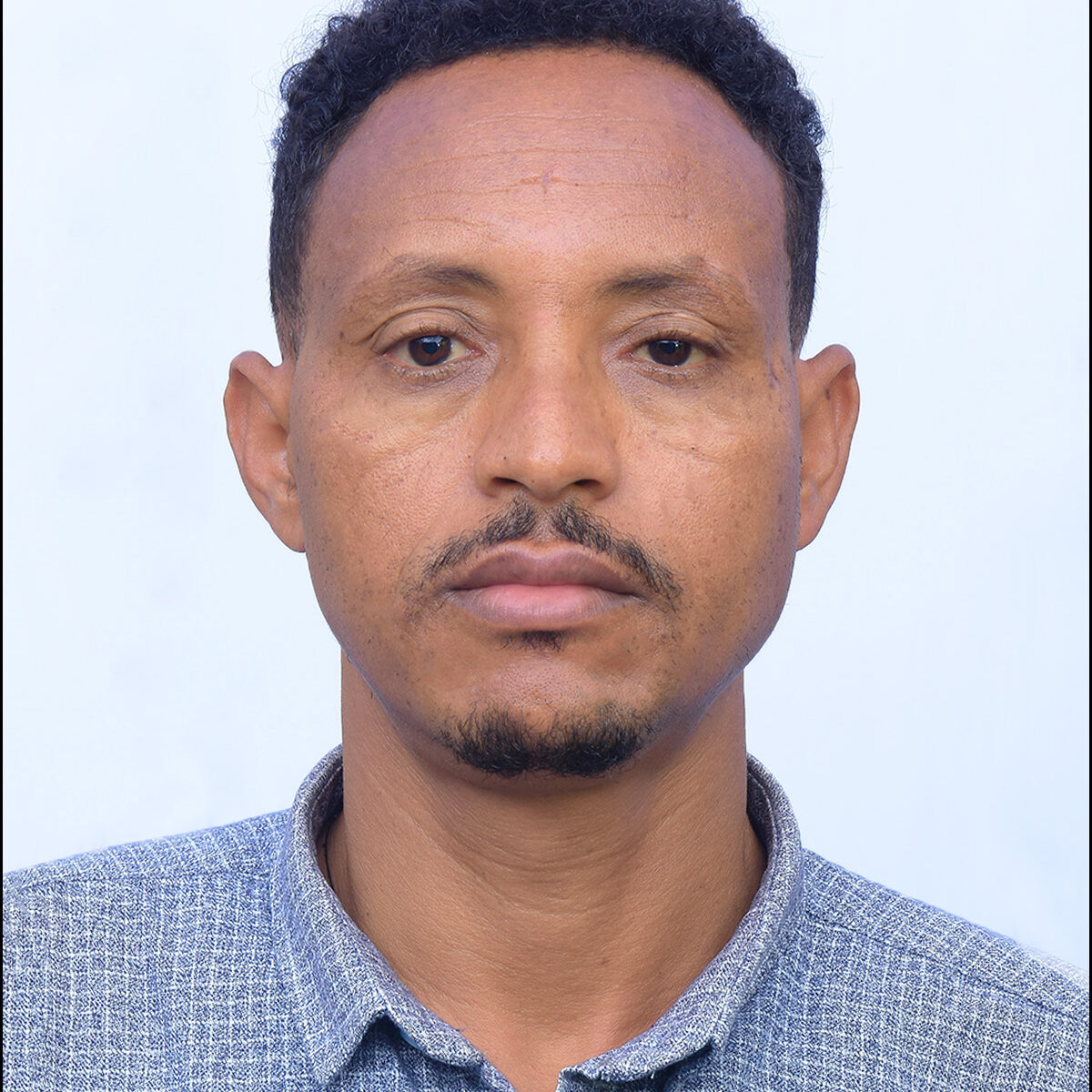
Muluberhan Biedemariam Tassew
Country: Ethiopia
Institution: Mekelle University
Project title: Developing nature-based solutions pathways to new layers of complexities for urban communities coping with conflict and climate change
Muluberhan Biedemariam a PhD student in Dryland Ecology and Resources Management at Mekelle University and is a Lecturer at Aksum University, Ethiopia. Muluberhan holds B.SC in Natural Resources Economics and Management, and M.SC in Geoinformation and Earth Observation Science for Natural Resources Management. Muluberhan is experienced in leading and managing development and research projects at non-governmental organizations including humanitarian organizations and governmental organizations. His research interest includes climate change mitigation and adaptation, natural resources management, nature-based solutions, green infrastructure connectivity, land use/cover analysis, landscape dynamics and analysis, urban and spatial analysis, ecosystem services valuation, community engagement and accountability, environmental impact assessment, and environmental entrepreneurship.
Nature-based climate solutions are crucial for urban sustainability and resilience. However, community-based humanitarian organizations potential to nature-based climate solutions, especially in communities coping with conflict and climate change is overlooked. This study will develop a framework for pathways to urban climate resilience by exploring pragmatic approaches used by community-based humanitarian organizations in coping with compounding risks of armed conflict and climate change.
Scientific evidence from local humanitarian organizations innovative strategies of resource mobilization for seedlings production and plantation activities on top of their humanitarian field to improve nature-based solutions to mitigate compounding effects of war and climate change in urban areas can help for impactful scaling to improve urban nature to benefit more vulnerable people within the country and beyond.

Juan Gamero Salinas
Country: Honduras
Institution: University of Navarra (Spain)
Project title: Trees4HeatResilience: Evaluating Tree Canopy Coverage to Reduce Air Conditioning Demand in Honduran Urban Neighbourhoods
I am an architect and researcher with over 7 years of expertise at the intersection of architecture, design, sustainability, technology, and AI. I hold a Ph.D. in Environmental and Technological Design and a master’s degree in Environmental Design. Currently, I work as a researcher on research projects involving the intersection between the built environment and AI at the Institute of Data Science and Artificial Intelligence (DATAI).
Our research team includes Mabel Morales Otero, a postdoctoral researcher at the Institute of Data Science and Artificial Intelligence (DATAI) at the University of Navarra. She is a mathematician with a PhD and specializes in spatio-temporal statistical models, bringing expertise in data analysis and modelling to our study.
Our research maps tree canopy coverage in San Pedro Sula’s metro area using AI and aerial images. We analyze how tree coverage affects A/C use in homes, using census data. Finally, we seek to assess how urban trees can help reduce cooling demand and support climate-resilient neighborhoods.
This study leverages AI, census data, and GIS to analyze how urban trees reduce A/C use, offering a data-driven approach to climate resilience. In Honduras, where A/C demand is rising but remains inaccessible to many, these insights might highlight trees as a sustainable cooling solution.
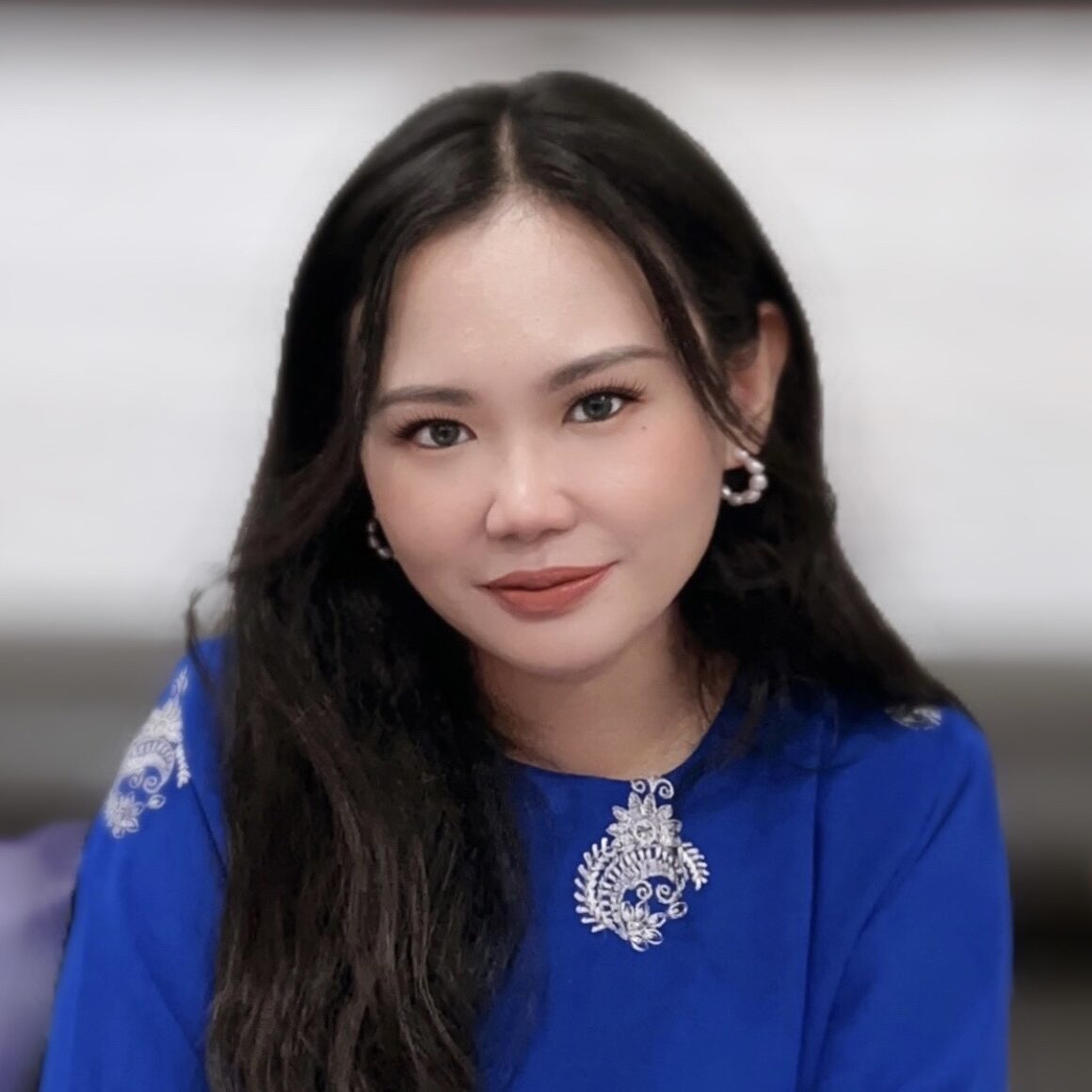
Hanna Akila B. Abdul Rauf
Country: Malaysia
Institution: Heriot-Watt University
Project title: Exploring community-driven environmental stewardship in upgraded informal settlements: the case of Bangkok, Thailand
Hanna is a PhD candidate at the Research Centre for Urban Studies, Heriot-Watt University in Edinburgh. Hanna holds an MSc Building and Urban Design in Development from the Bartlett Development Planning Unit at UCL. Prior to joining Heriot-Watt, she was a research associate at the Resilient and Inclusive Cities Lab, Nanyang Technological University Singapore. Her previous work explored nature-based solutions for climate resilience in informal settlements in Southeast Asia and Pacific Islands.
Alexander van der Jagt is an Assistant Professor of Urban Greenspace Governance in the School of Energy, Geoscience, Infrastructure and Society (EGIS) at Heriot Watt University. He is an international expert in the participatory design, governance and mainstreaming of nature-based solutions for sustainable and just cities. As part of the Horizon 2020 research project CONEXUS, he coordinated a multidisciplinary team in developing a participatory assessment framework for nature-based solutions in Latin American and southern European cities.
Harry Smith is Professor in Global Urbanism and Head of the Research Centre for Urban Studies, Heriot-Watt University. Much of his work has an international focus, collaborating with partners in Latin America, Europe and Africa, examining planning and housing issues, community empowerment, participatory processes and user involvement with a focus on low-income areas. In recent years he has led transdisciplinary research on the co-production of landslide risk management and climate change adaptation in self-built neighbourhoods in Latin America.
Supreeya Wungpatcharapon is an Assistant Professor at Kasetsart University's Department of Architecture and a licensed Thai architect. Supreeya was involved in Knowledge in Action for Urban Equality (KNOW) project with the Bartlett Development Planning Unit (DPU) UCL, Asian Coalition for Housing Rights and CODI to investigate the practice of community development network of Baan Mankong in Nakhon Sawan Thailand. She has contributed to the expansion of the Asian Coalition for Housing Rights’ (ACHR) network in Thailand and Asia by building capacity for young architects to work with dwellers in informal settlements.
Sani Limthongsakul is an Associate Professor of Landscape Architecture at Kasetsart University and trained as both architect and landscape architect. Sani holds an MLA in Landscape Architecture from Texas A&M University, USA and PhD in Urban Environmental Management from Asian Institute of Technology, Thailand. Her research interests focus on urban stormwater management, stormwater governance, peri-urbanization, and water sensitive planning management. She teaches nature-based solutions design and her previous works include several highway landscape design projects - on low impact development as well as the assessment of the Bangkok city park (Jatujak) rehabilitation project.
Communal gardens, green open spaces, and canal revegetation are typical nature-based solutions commonly used for building climate resilience in self-built neighbourhoods. This study seeks to identify factors influencing community-based stewardship of nature-based solutions in Bangkok’s upgraded informal settlements, Thailand. It will then explore alternative arrangements that support the mobilisation and continuity of localised stewardship actions in informal settlements.
Localised stewardship actions by marginalised urban inhabitants can play an important role in climate change adaptation. The findings will be used to facilitate social learning and inform city actors on how to leverage more just and equitable environmental stewardship for resilient cities.
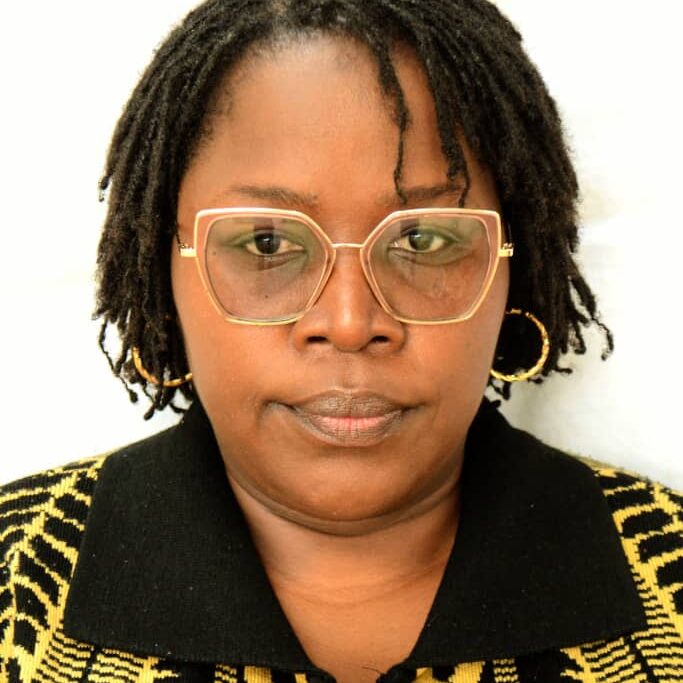
Munashe Catharine Kurehwatira
Country: Zimbabwe
Institution: Africa University
Project title: Effectiveness of Urban Agriculture as a Nature-Based Solution for Urban Climate Resilience in Mutare, Zimbabwe
Munashe is a Natural Resources Management lecturer at Africa University. She is passionate about sustainable food systems in Africa. Her experience in natural resource management allows her to apply her knowledge and skills in analyzing community environmental footprints. She envisions communities that are empowered to be robust, resilient and sustainable in the face of disturbances. Munashe is working on the food environment and disturbance nexus in Zimbabwe as part of her PhD studies.
Prof Joseph Kamuzhanje is a Professor of Practice in rural, urban and regional development with over 30 years of experience in government, NGOs, academia and the private sector. Currently, he is a Special Development Projects Executive at Coopers Zimbabwe Pvt Ltd
Dr Sebastian Chakeredza is an Animal Science Lecturer and Researcher at Africa University
Ms. Faith Chinete is a Laboratory Technician at Africa University
The research will assess the nature and extent; the impacts and challenges of urban agriculture in Mutare in order to identified urban agricultural practices that can be scaled up to contribute towards building urban climate resilience. This is because urban areas are grappling with climate extremes, poverty, growing population and food insecurity making climate resilience an important attribute. Urban areas are expected to survive, adapt and thrive in the face of climate related disturbances.
The study will provide information essential for formulating context specific urban agriculture interventions, policies and strategies for building urban climate resilience. The findings will improve stakeholders’ awareness of urban agriculture as a nature based solution for urban climate resilience.
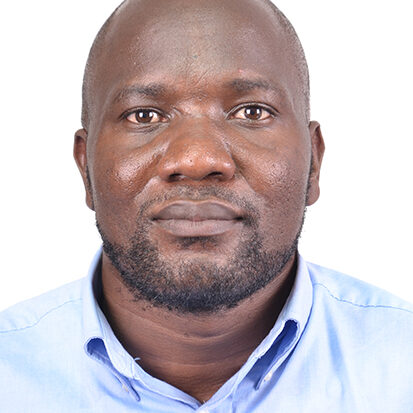
Bolly Kevin Echessa
Country: Kenya
Institution: Kenyatta University
Project title: Evaluating Nature-Based Greening Solutions in Nairobi's Informal Settlements: Mitigating Urban Heat Effects and Enhancing Food Security
Geomatic Engineer and Environmental planner passionate about sustainability, climate resilience, and data-driven development across urban and rural systems.
I am working with a multidisciplinary team comprising Mercy Osumo (Urban Planner), Laurain Kabaka (Microbiologist), and Fred Okeyo (Environmental Scientist and GIS Analyst). Together, we bring diverse perspectives to address complex environmental challenges.
Evaluating nature-based greening solutions in Nairobi’s informal settlements to mitigate urban heat effects and enhance food security for vulnerable communities.
The study supports healthier, climate-resilient neighborhoods through green infrastructure and improved urban food systems.
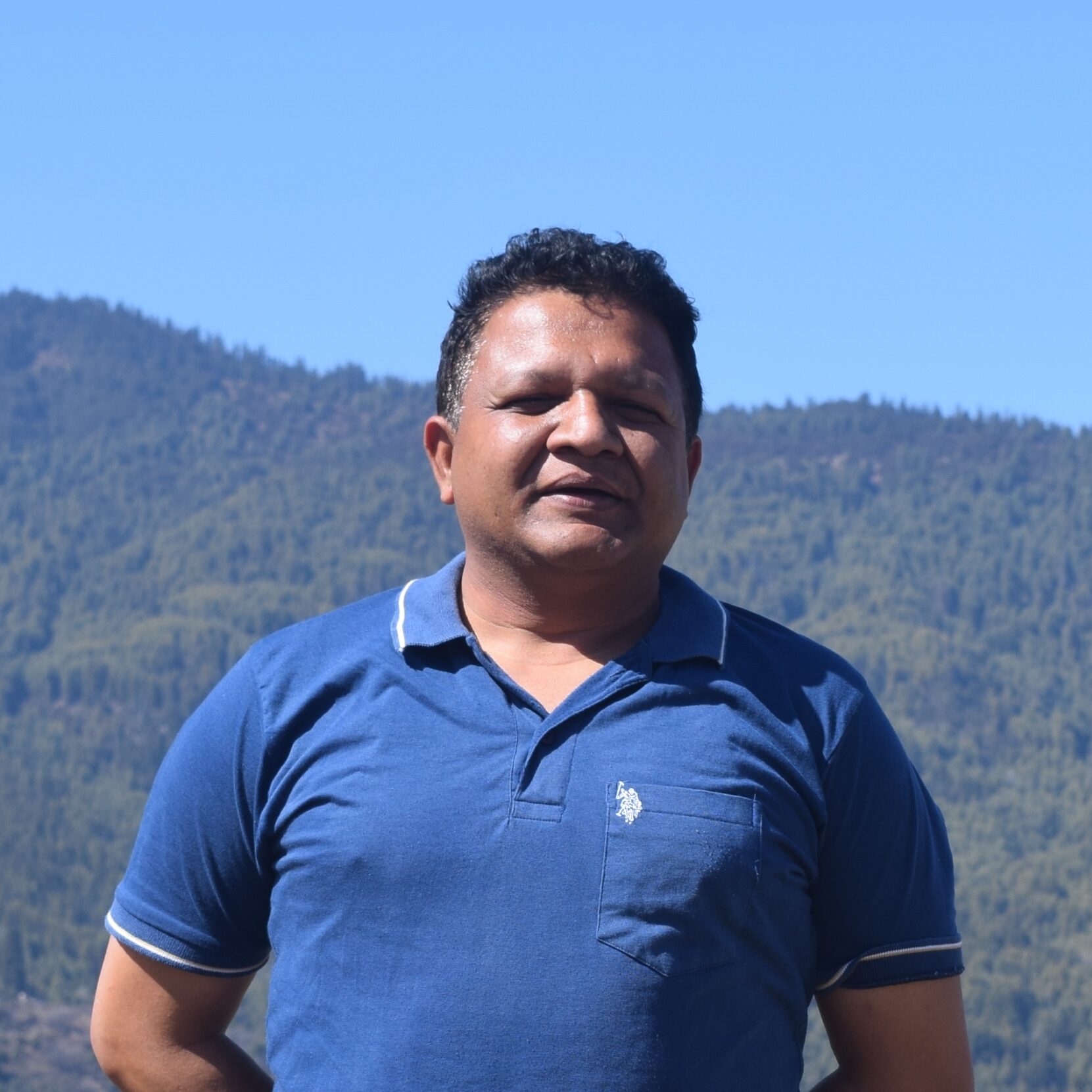
Ravi Mohan Tiwari
Country: Nepal
Institution: Kathmandu Institute of Applied Sciences (KIAS)
Project title: Nature-Based Solutions for Urban Climate Risks: Assessing Local Engagement, Implementation and Scalability in Bharatpur, Chitwan, Nepal
Dr. Ravi Mohan Tiwari, the Principal Investigator (PI), brings deep expertise in forest ecology, biodiversity, and ecosystem functioning. He holds a PhD in Forest Ecology from Hokkaido University, Japan, and has conducted extensive research on forest dynamics in both the Nepal Himalayas and Hokkaido. His postdoctoral work at Zhejiang University in China, alongside his research experiences in Poland and Japan, has focused on subtropical forests, biomass, and functional diversity. Dr. Tiwari's research on climate change, forest conservation, and biodiversity is widely published, establishing his authority in the field. His work has provided valuable insights into high-altitude forests in Nepal and the dynamics of Himalayan subalpine forests. His leadership and technical expertise are central to the project’s success.
Dr. Susma Giri, an ecologist, with a PhD from the University of Wyoming, has led numerous international research projects. Her expertise lies in biodiversity conservation, species adaptation to climate change, and the development of eco-friendly technologies. As the Director of Research at Kathmandu Institute of Applied Sciences (KIAS), Dr. Giri has successfully managed grants from organizations such as the Rufford Small Grant and National Geographic Society, demonstrating her skill in overseeing complex, multidisciplinary research initiatives. Dr. Giri's leadership in the European Union-funded EGEA project on Green Economy and various citizen science initiatives highlights her ability to implement Nature-Based Solutions (NbS) for urban climate resilience. Her work on AI-assisted microscopy and rainfall measurement further underscores her capacity to integrate technology with environmental science, providing a solid foundation for the project.
Dr. Jagan Nath Adhikari is an Assistant Professor at Tribhuvan University and former Conservation Officer at the National Trust for Nature Conservation (NTNC). His experience spans biodiversity conservation, climate change, and ecosystem management. Dr. Adhikari is the author of influential textbooks on practical zoology and zoology for graduate students. His academic and fieldwork contributions have shaped natural resource management in Nepal, enhancing his ability to manage and guide projects focused on biodiversity and conservation efforts in changing climates.
This research focuses on evaluating the potential of community-based Nature-based Solutions (NbS) to enhance urban climate resilience in Bharatpur Metropolitan City, Nepal. As one of the fastest-growing cities in the country, Bharatpur faces significant climate challenges, including flooding, heat stress, and water runoff, exacerbated by rapid urbanization and environmental degradation. The study will assess the effectiveness of existing NbS interventions, such as urban gardens, parks, and the restoration of the Narayani River bank, in mitigating these risks. Community participation will be central to this research, as local engagement is key to ensuring the sustainability of NbS. Additionally, the study will explore the scalability of these solutions, identifying barriers and opportunities for expanding NbS in other urban areas of Nepal. The outcomes will include a comprehensive assessment of NbS effectiveness, a framework for scaling these solutions, and evidence-based policy recommendations aimed at strengthening urban climate resilience.
This research aims to assess the effectiveness of Nature-based Solutions (NbS) in urban settings and develop a scalable framework for implementation. The study will provide evidence-based policy recommendations to bridge the gap between scientific insights and practical application, enabling cities to adopt cost-effective NbS strategies. The findings will empower policymakers, urban planners, and community leaders to design resilient cities, protect vulnerable populations, and enhance overall well-being. By fostering climate-adaptive urban environments, this research will contribute to healthier, more sustainable communities, benefiting those most affected by climate change with innovative and long-lasting solutions.
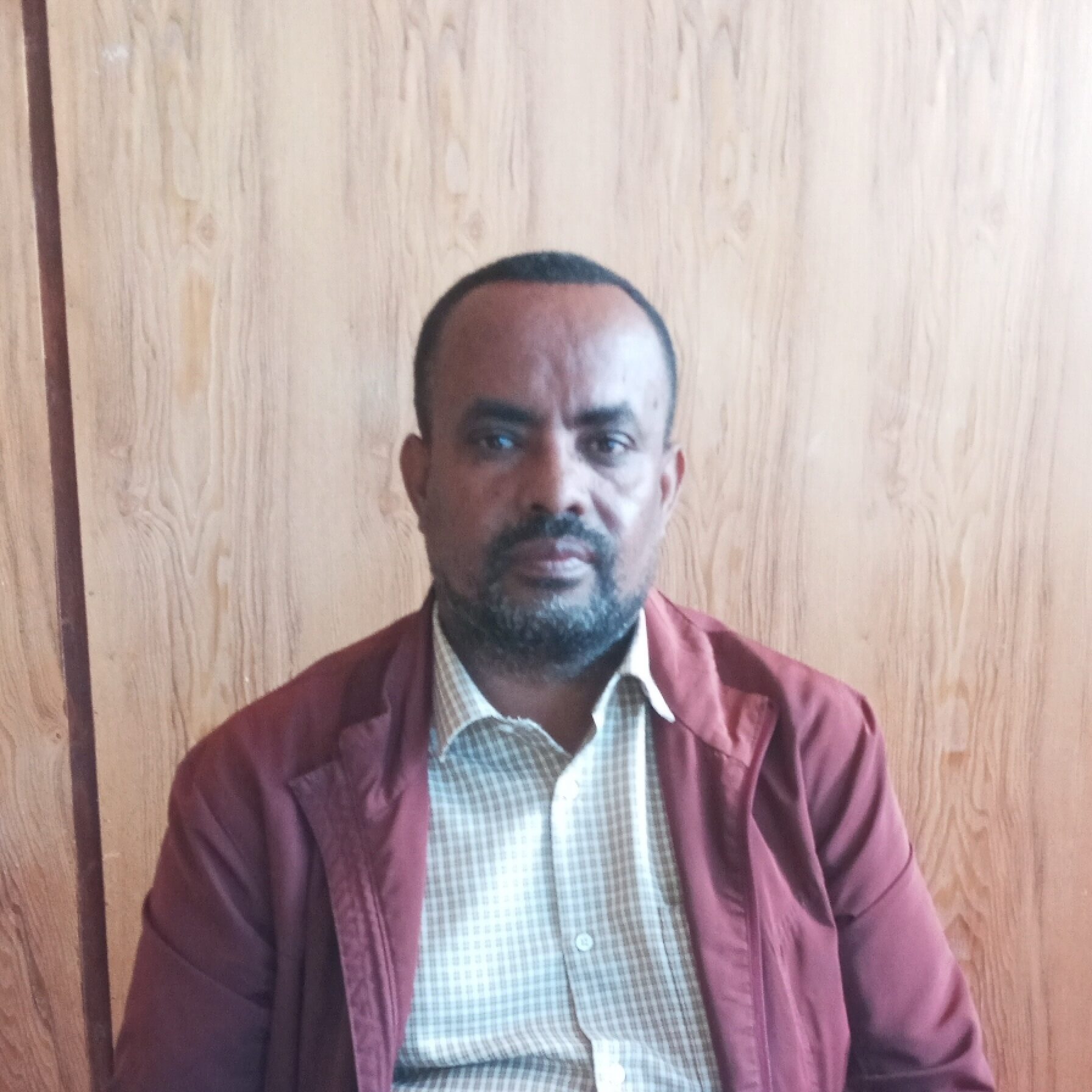
Amogne Asfaw Eshetu
Country: Ethiopia
Institution: Wollo University
Project title: Investigating and Scaling-up Effective Nature-Based Solutions for Climate Resilience in Dessie City Administration, Ethiopia
Amogne Asfaw Eshetu is an Associate Professor in Geography and Development Studies at Wollo University, Ethiopia, with over 24 years of teaching and research experience. He holds a PhD in Development Studies from Addis Ababa University, specializing in rural livelihoods and development. His research interests include climate change adaptation, rural livelihood diversification, sustainable natural resource management, and socio-economic development. Dr. Amogne has published extensively in peer-reviewed journals and has contributed to numerous research projects funded by international and local organizations.
Abebe Mohammed (PhD, associate professor in GIS and remote sensing for Natural resource Management)
Abebe Arega (PhD in Socioeconomic development planning and Environment)
Girma Moges (PhD in Physical geography)
Marie Addis (PhD in Environmental Planning)
Hailu Ayene (MSc in Geo-information Sciences)
The research aims to evaluate the effectiveness of current nature-based solutions (NBS) in addressing the adverse effects of climate change. It will also examine local community perceptions of NBS, identify the primary challenges encountered during their implementation, and assess the vulnerability of Dessie city to flooding and landslides. Additionally, the study will involve suitability mapping to facilitate the scaling up of NBS.
The insights gained from this research will aid in scaling up best practices and identifying suitable sites for the further expansion of nature-based solutions.
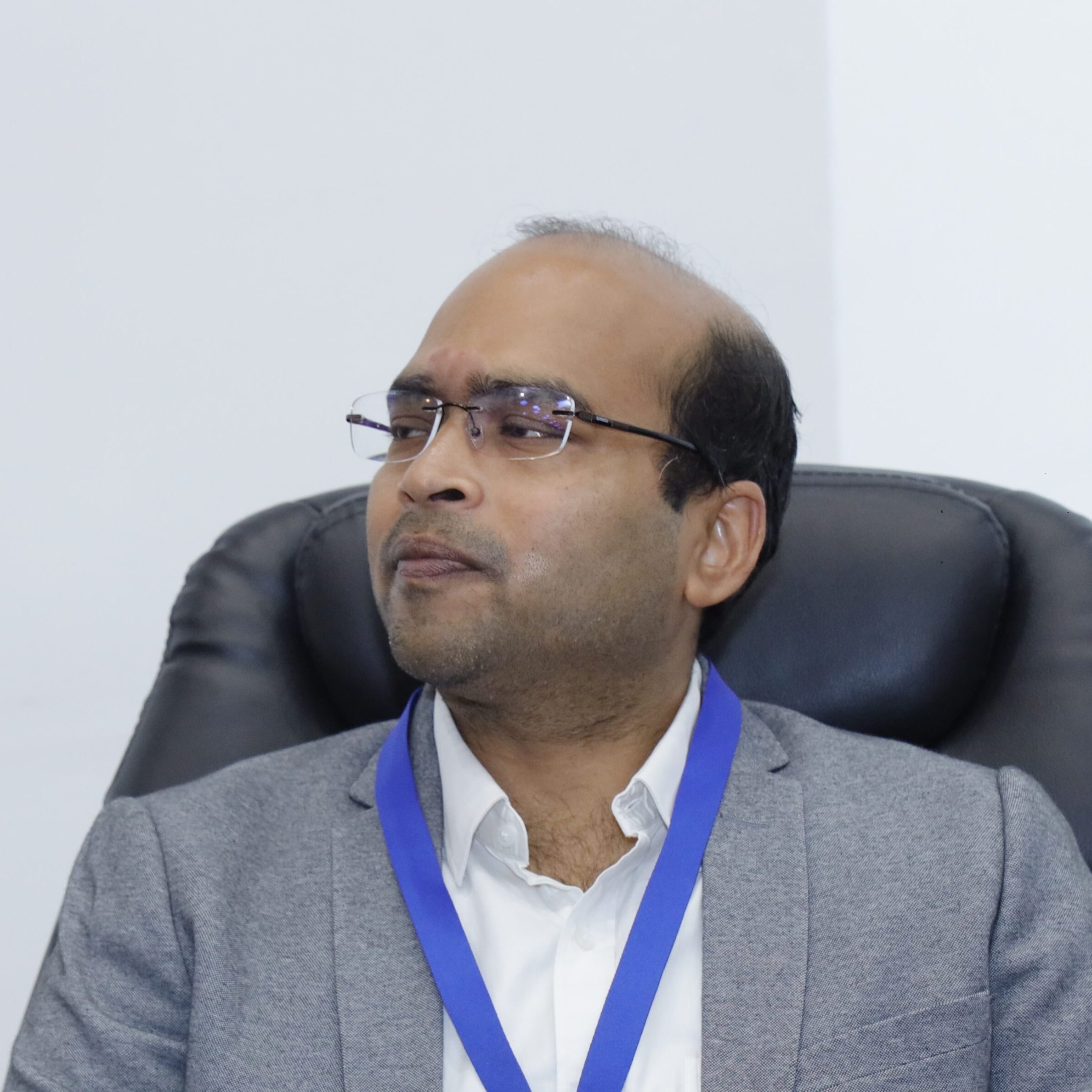
Chandan Sarangi
Country: India
Institution: Indian Institution of Technology Madras
Project title: Edible Rooftop Gardens – A Community and Nature-based Climate Resilience Building Strategy
Dr. Chandan Sarangi (Assistant Professor, Department of Civil Engineering, IIT
Madras): With a Postdoctoral Research tenure at the Pacific Northwest National Laboratory (PNNL), USA, and an Integrated Ph.D. from IIT Kanpur, along with a bachelors degree from NIT Warangal, has a strong background in Earth system science. Research expertise spans aerosol-climate interactions, land-atmosphere processes at various micro-environments, the impact of climate change on extreme events and urban heat islands (UHI). Specialized in high-resolution climate modeling, remote sensing data analysis, and in-situ atmospheric measurements to study environmental changes and their implications. Over the past decade, has been part of leading research teams conducting cutting-edge studies on atmospheric and climate science. Research findings have been published in prestigious journals such as Nature Communications, Nature Geosciences, Nature Climate Change, GRL, Atmospheric Chemistry and Physics, etc contributing valuable insights into climate modelling, urban sustainability, and environmental policy-making.
Dr. Parama Roy is trained as an urban geographer. Her research interest lies in the multifaceted and complex nature of urbanization process and its social and environmental implications in sectors of food, water, and waste. She is motivated by principles of socio-environmental justice and sustainable development. After completing her PhD from University of Wisconsin-Milwaukee, she have worked at Georgia State University (USA) and University of Copenhagen (Denmark) as faculty. Currently She is holds an Adjunct Faculty position at IIT-Madras. Since, 2019, She have also been working closely with the Chennai Resilience Center as a Research and M&E Advisor primarily on CRC's Chennai Urban Farming initiative and Urban Ocean program.
Dr. Gourav Suthar (Team member): With expertise in environmental science and urban climate studies, specializes in spatiotemporal analysis of air pollution, land surface temperature (LST), and urban heat island (UHI) effects. Holding a Ph.D. from Malaviya National Institute of Technology (MNIT), Jaipur, research focuses on understanding the relationship between air pollution and LST in Indian cities. Currently working as a Senior Research Fellow at the Indian Institute of Technology Madras (IITM), Chennai, studying temperature variations in multiple cities across India to assess how urbanization influences
temperature. Extensive experience in analyzing diurnal and seasonal LST variations, assessing the role of air pollutants, and utilizing remote sensing and GIS for spatial analysis. Previous studies have applied machine learning techniques to predict maximum air temperature, contributing to better climate adaptation and urban planning strategies aimed at mitigating heat stress and improving environmental sustainability in rapidly growing urban areas.
This study seeks to assess if and how rooftop vegetable gardens can be an effective community driven and nature-based adaptation strategy for coping with heat. Using sensor-based temperature and humidity data and feedback from communities, government agencies, and green-building experts this study will explore the possibility of promoting edible rooftop gardens through policy change and incentivization especially for the benefit of the vulnerable communities in the city/state.
The learnings will form the basis for initiating a policy level dialogue on how relevant government and private actors serving the vulnerable communities may integrate such low-cost and nature-based solutions as an adaptation strategy in their plans/projects building climate resilient communities.
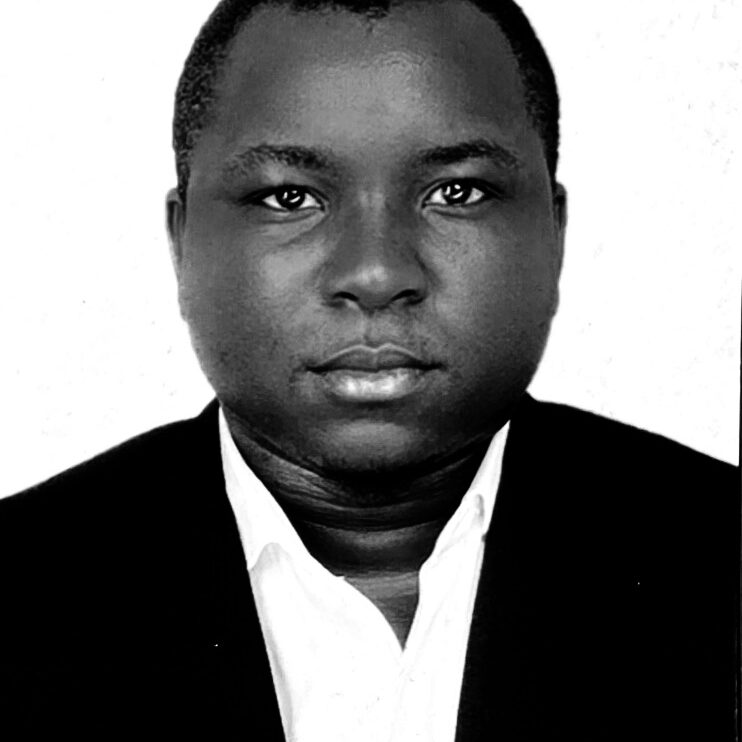
Arnold Tigaiza
Country: Uganda
Institution: Makerere University School of Public Health
Project title: Nature-Based Solutions for Flood Management and Soil Stabilization in Mbale City, Uganda
Arnold Tigaiza is a Research Associate at Makerere University School of Public Health in Uganda, where he also earned his Bachelor's and Master's degrees. His current research focuses on Nature-Based Solutions (NBS) for flood management and soil stabilization. Arnold's broader research interests include climate change and health, mental health, and infectious disease prevention, particularly in low- and middle-income settings. He has co-authored publications on HIV prevention, HPV vaccine uptake, digital health innovations, and One Health approaches. As a researcher, he is committed to generating evidence that informs policy and promotes equitable, sustainable, and locally relevant health and environmental solutions.
This study focuses on identifying existing Nature-based solutions, evaluating public knowledge and acceptance, exploring barriers and facilitators, and recommending scalable, sustainable interventions tailored to the city's urban and environmental context.
This study will generate evidence for local authorities on what works and what does not in managing floods and stabilizing soil. This can inform the development of appropriate interventions. The results may serve as a valuable reference for Uganda’s Ministry of Water and Environment and other regional bodies in East Africa looking to scale up NBS as part of their climate resilience strategies. The study’s evidence-based recommendations can be utilized in developing guidelines and best practices for implementing NBS in other urban areas facing similar challenges. The research will also have broader global significance by contributing to international discussions on sustainable urban resilience, particularly within the framework of the United Nations Sustainable Development Goals (SDGs), specifically SDG 11 (Sustainable Cities and Communities) and SDG 13 (Climate Action).

Parama Roy
Country: India
Institution: Indian Institution of Technology Madras
Project title: Edible Rooftop Gardens – A Community and Nature-based Climate Resilience Building Strategy
Parama has over 19 years of experience in action-based research with a focus on human-nature interaction, community engagement and urban policy/planning. She completed her PhD in Urban Geography from the University of Wisconsin-Milwaukee, USA. She taught at the Georgia State University and the University of Copenhagen, prior to joining Okapi Research & Advisory, as the Executive Director and taking on an adjunct faculty position at the Indian Institute of Technology Madras.
Dr. Chandan Sarangi and Dr. Parama Roy will be leading a team of researchers from IIT Madras and Okapi Research & Advisory for this project. The team will be supported by Chennai Resilience Center in setting up and maintenance of the the edible gardens during the course of the research.
This study seeks to assess if and how rooftop vegetable gardens can be an effective community driven and nature-based adaptation strategy for coping with heat. Using sensor-based temperature and humidity data and feedback from communities, government agencies, and green-building experts this study will explore the possibility of promoting edible rooftop gardens through policy change and incentivization especially for the benefit of the vulnerable communities in the city/state.
The learnings will form the basis for initiating a policy level dialogue on how relevant government and private actors serving the vulnerable communities may integrate such low-cost and nature-based solutions as an adaptation strategy in their plans/projects building climate resilient communities.

